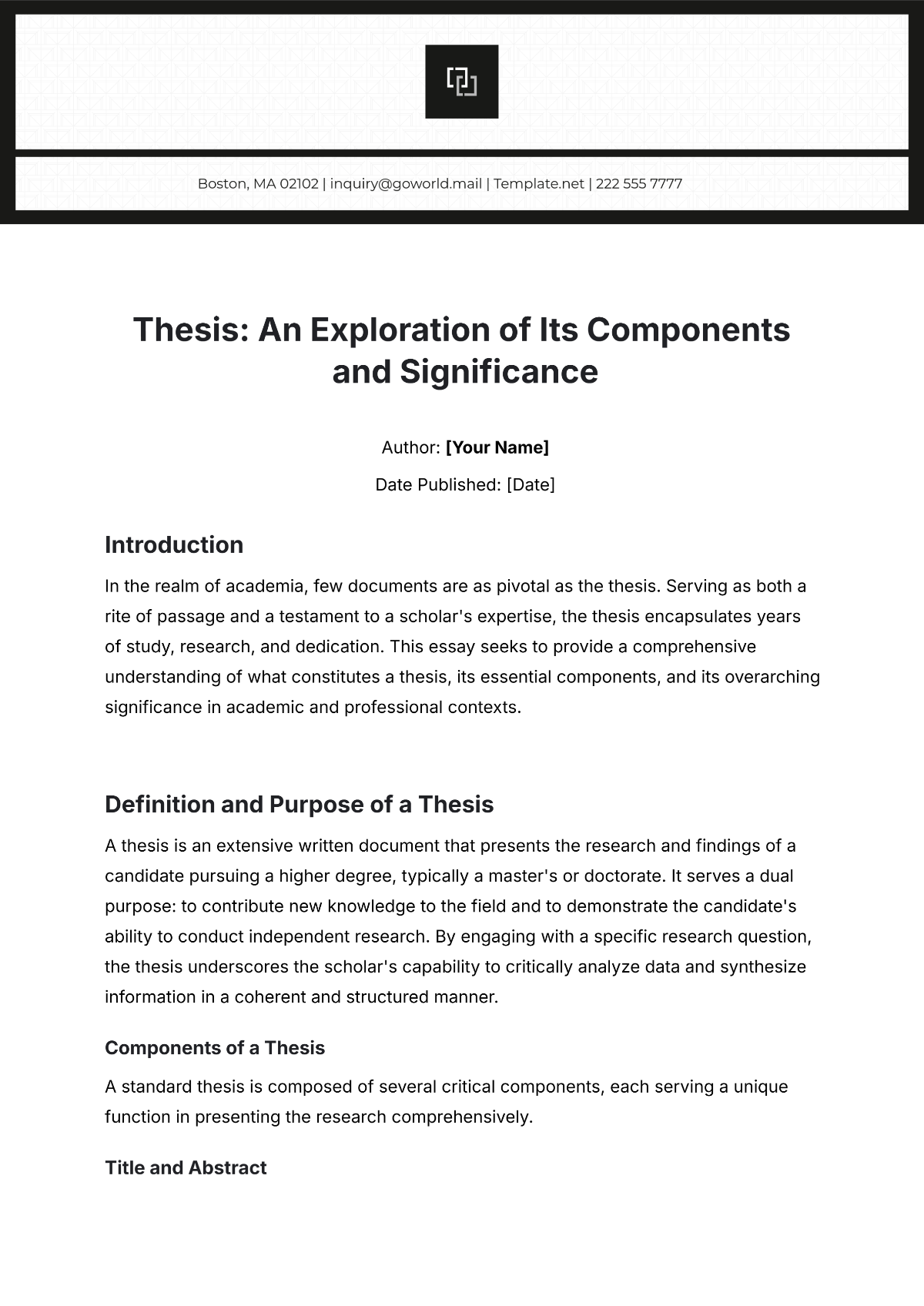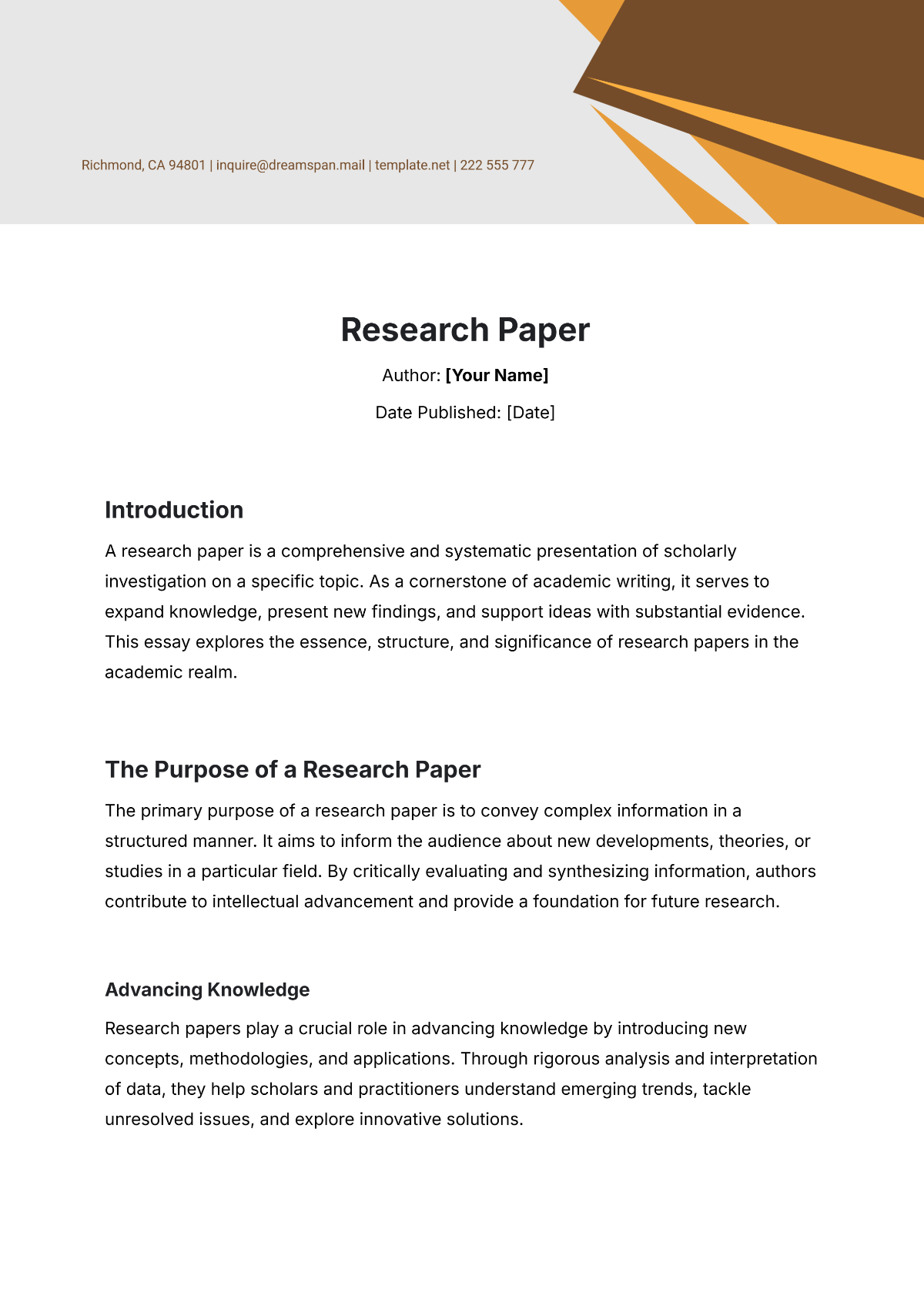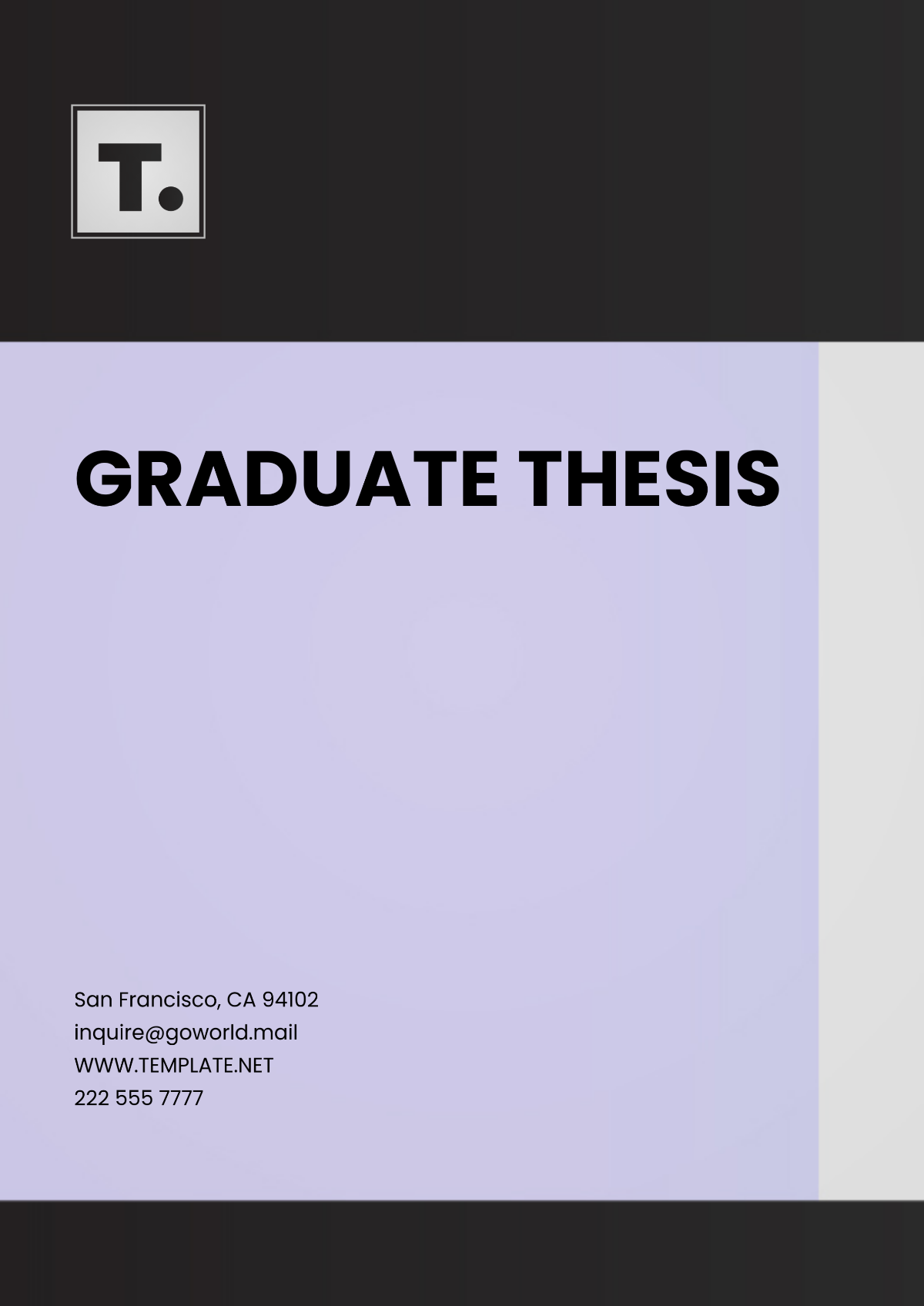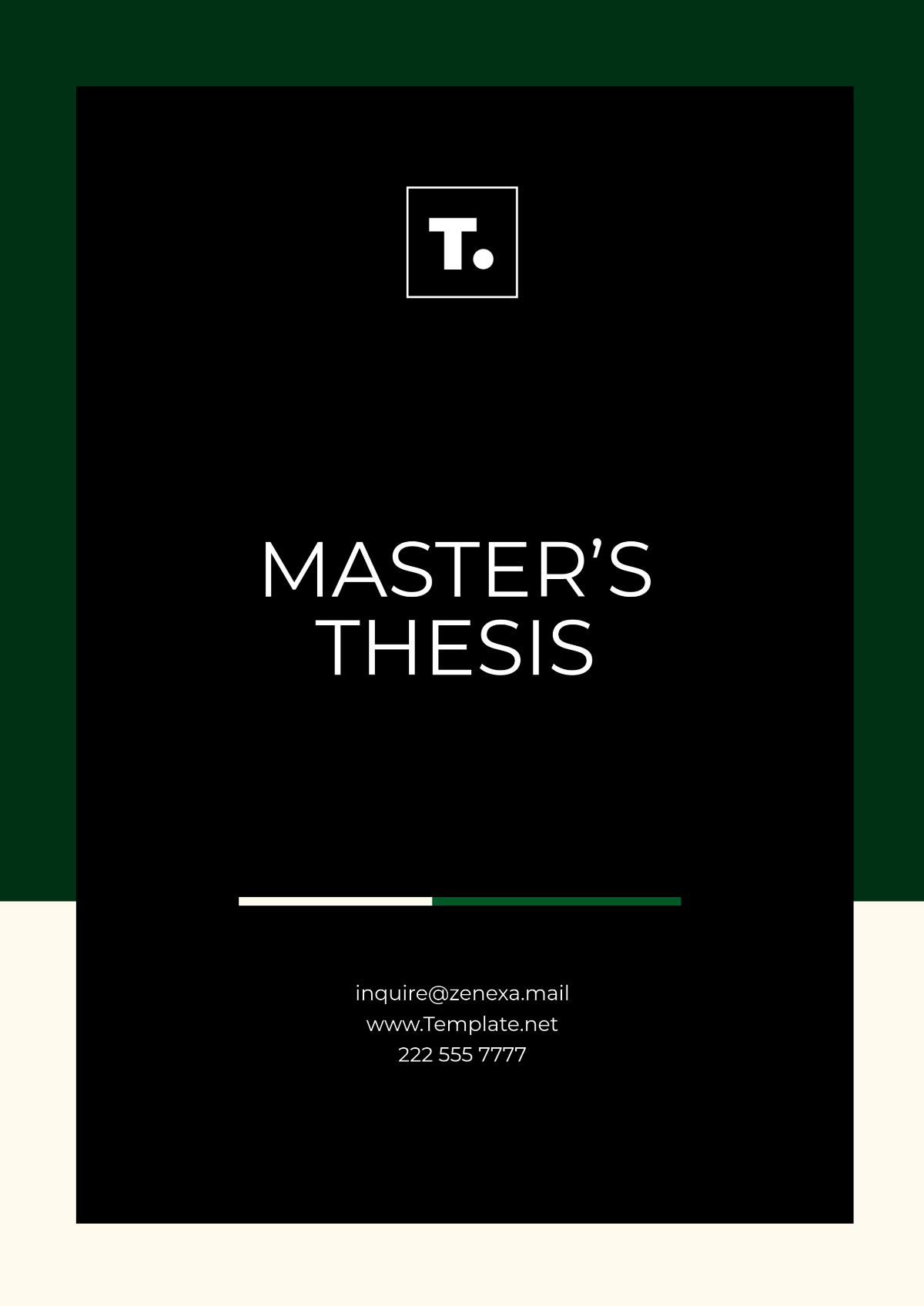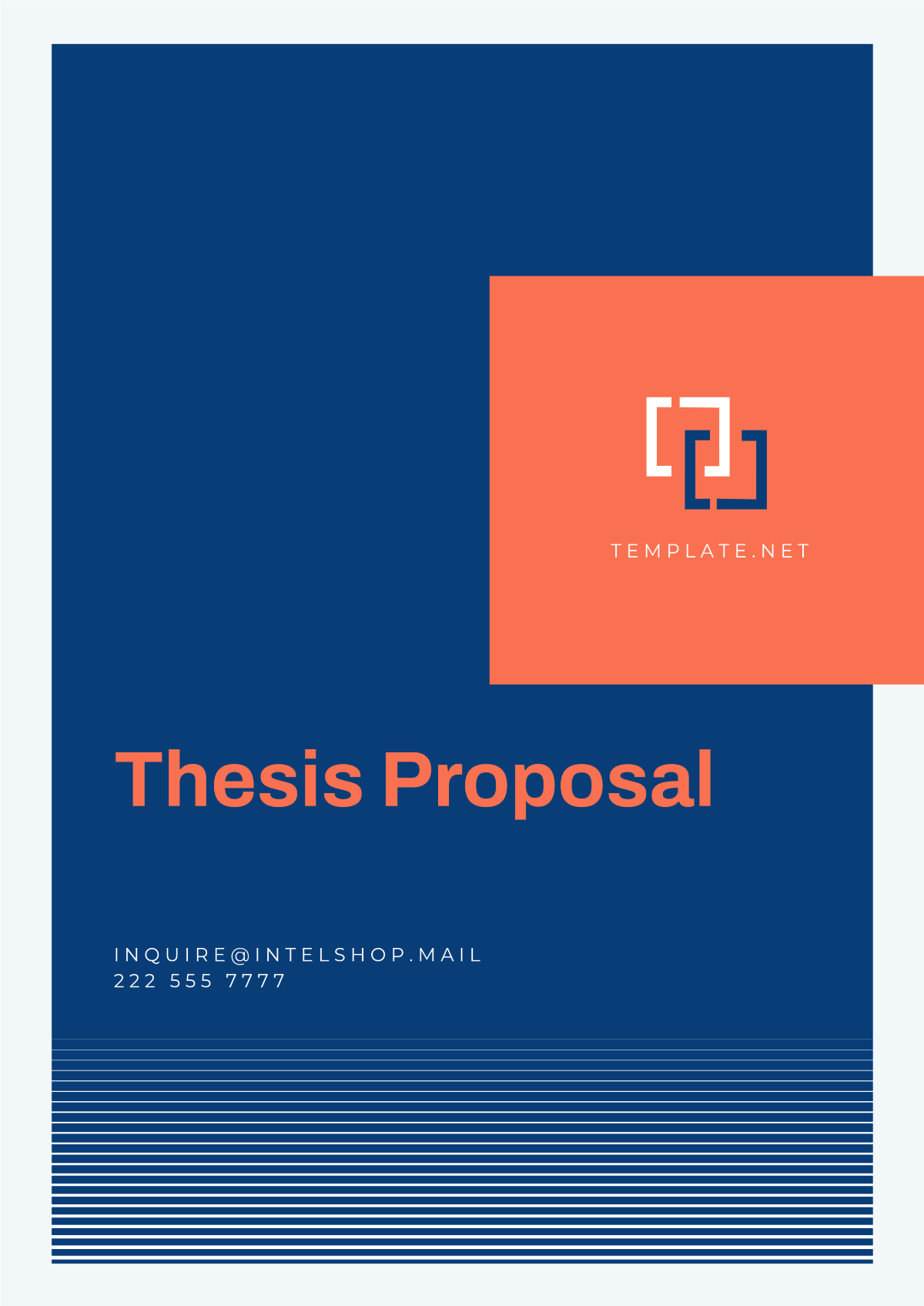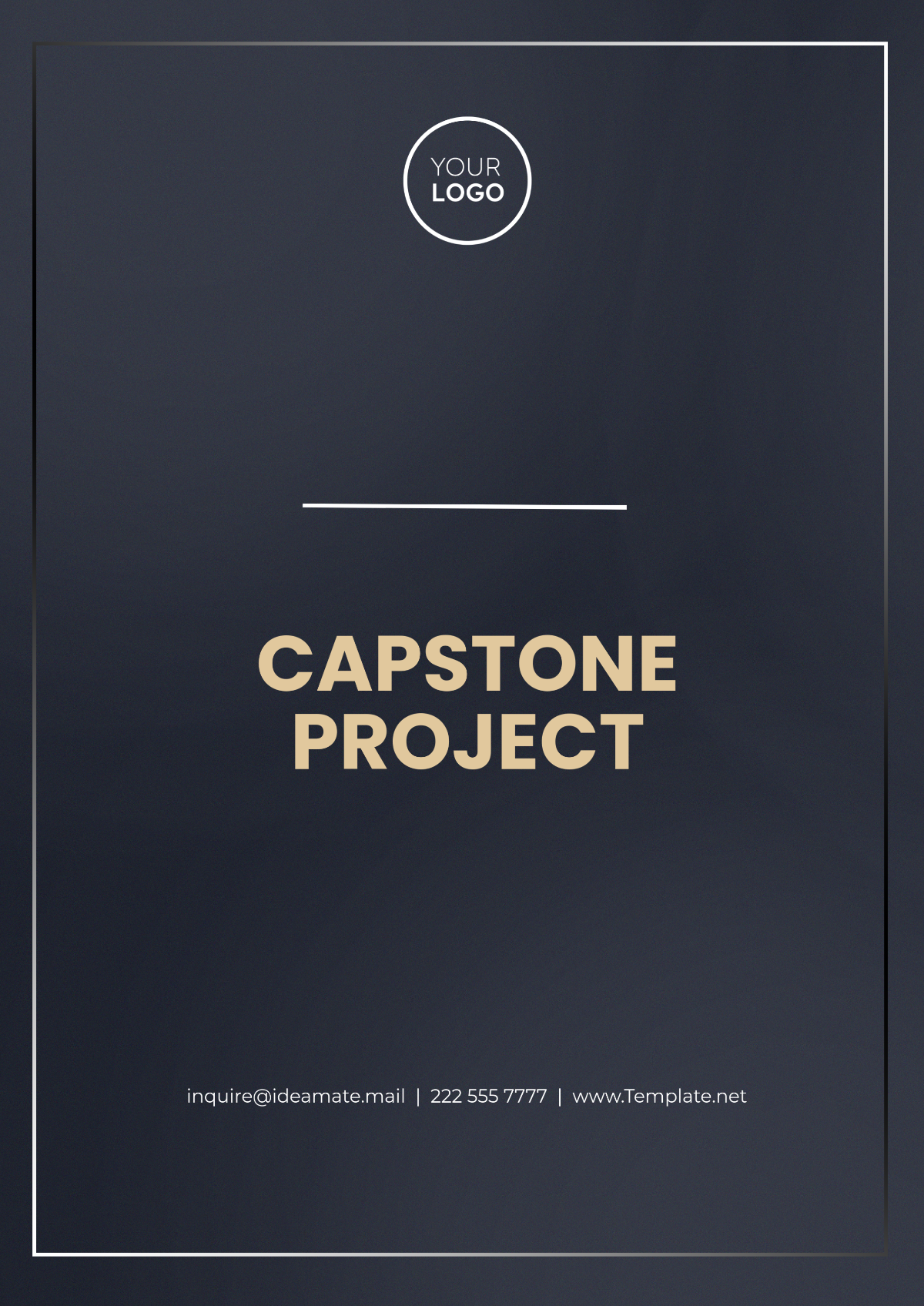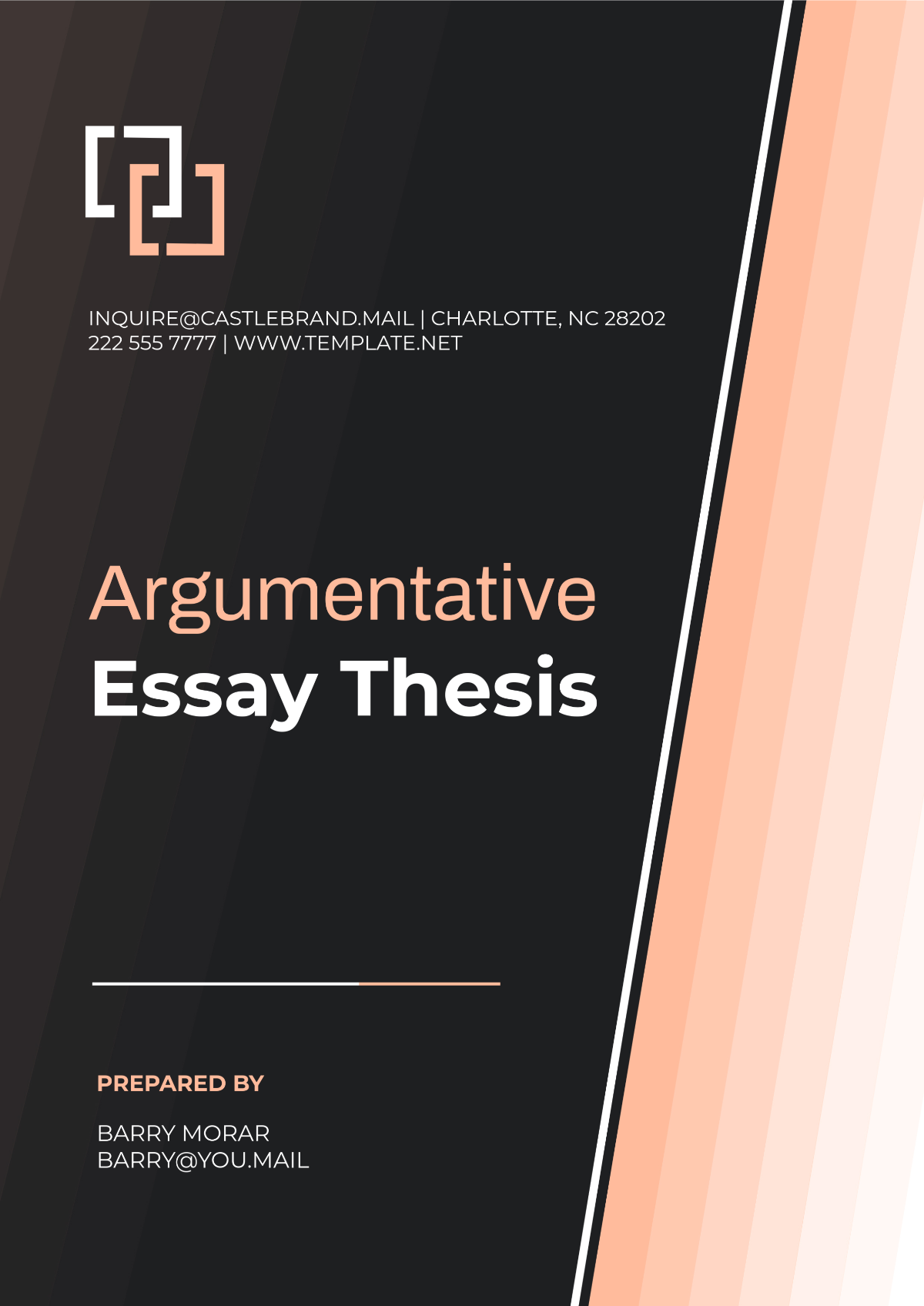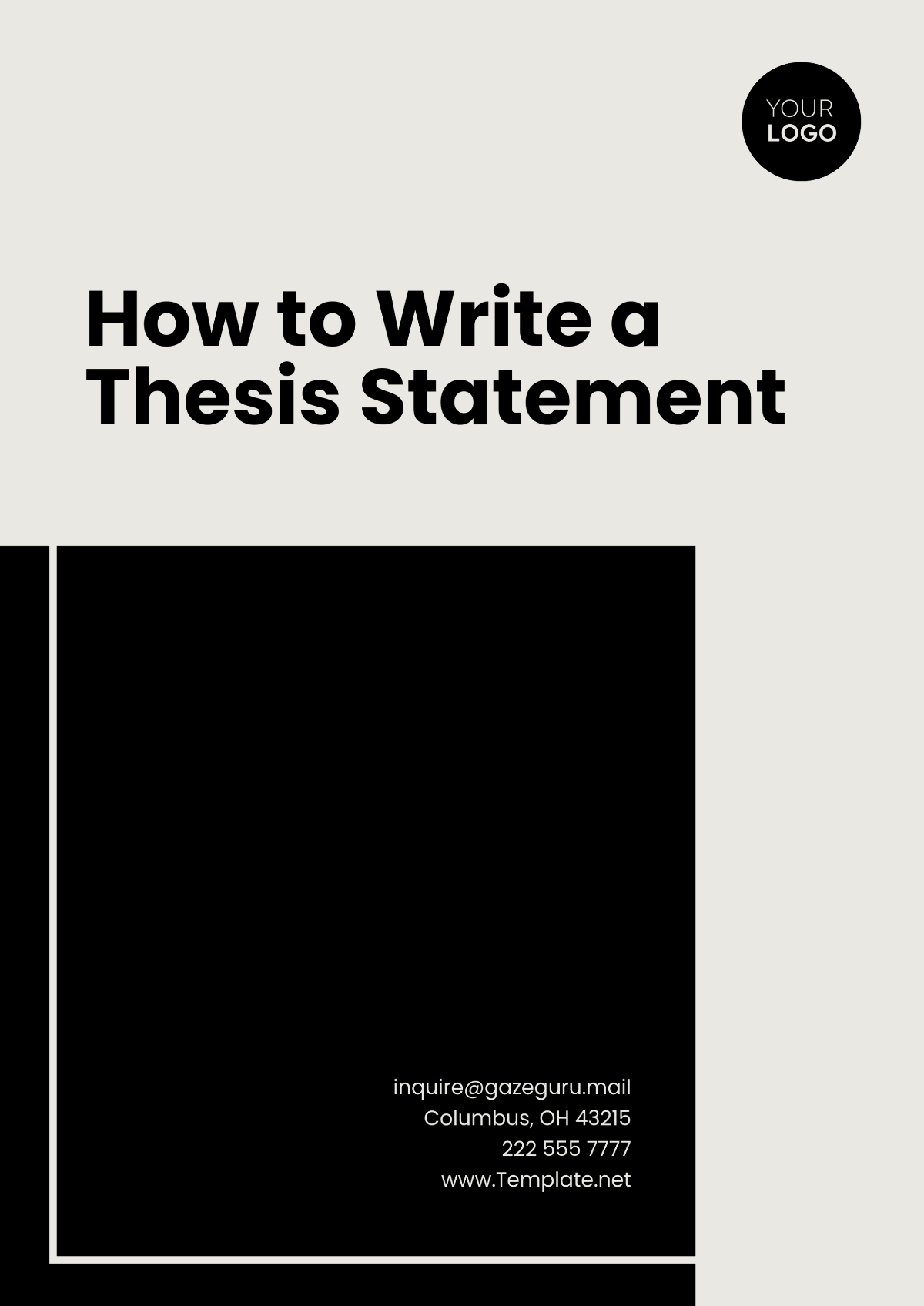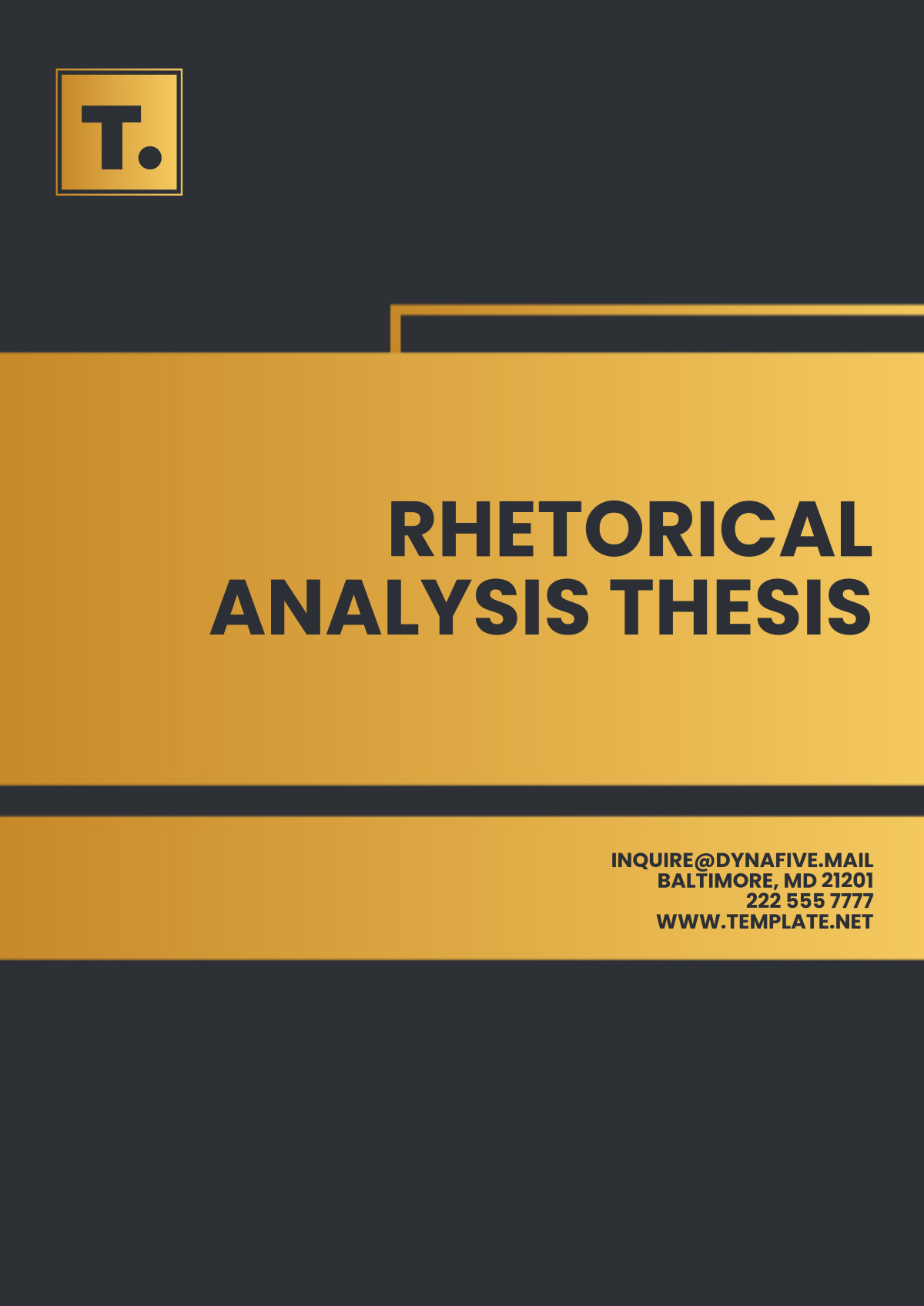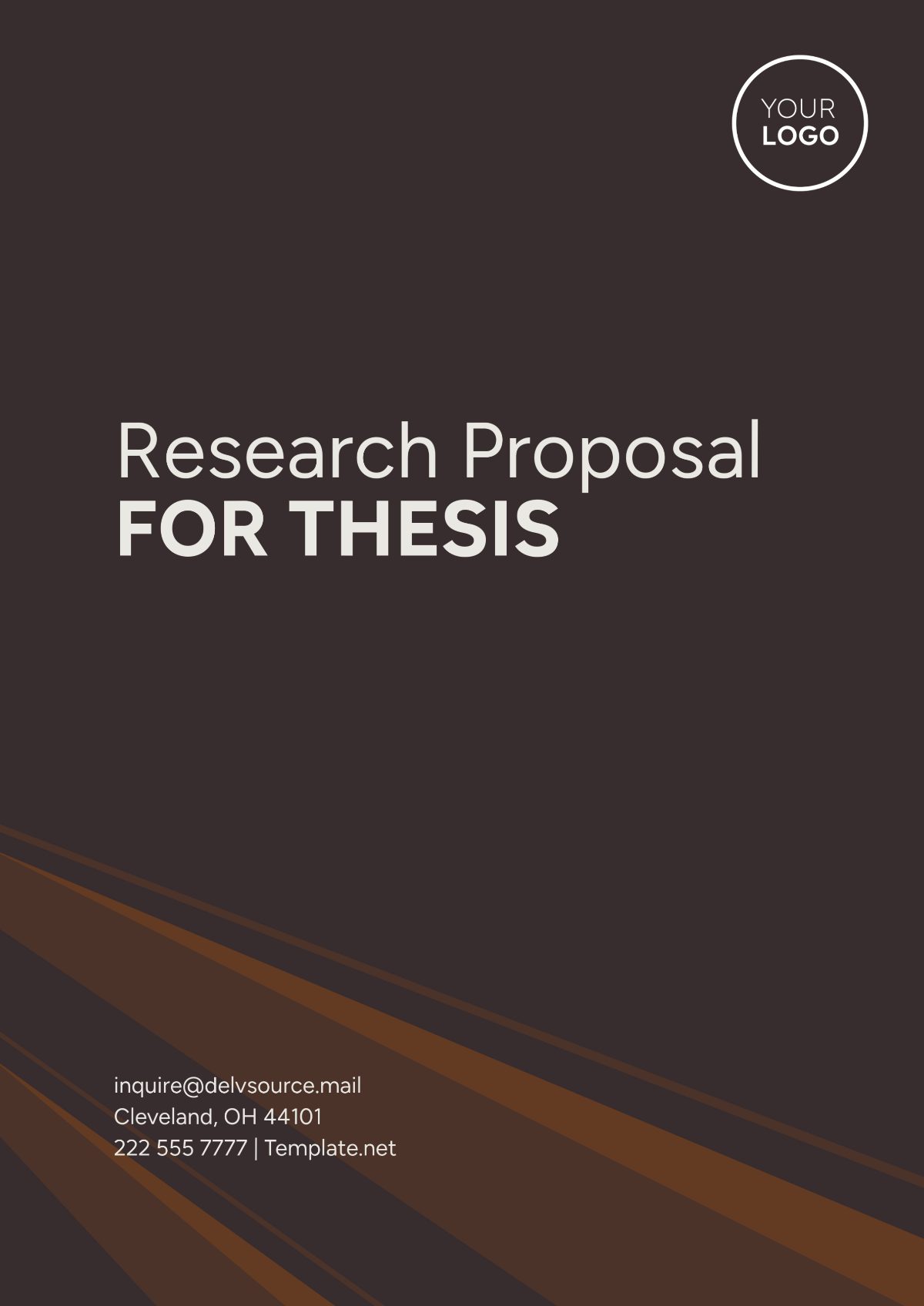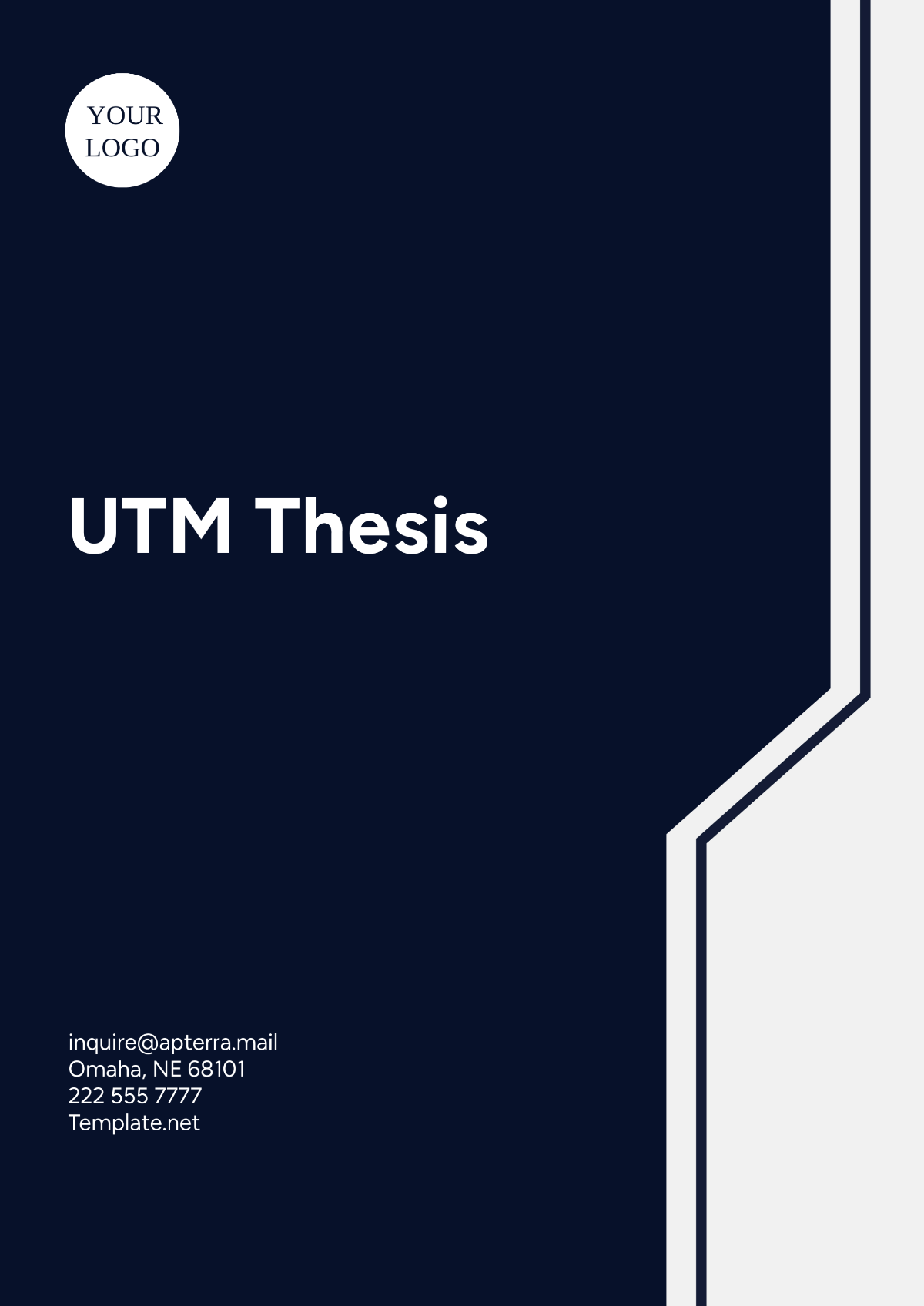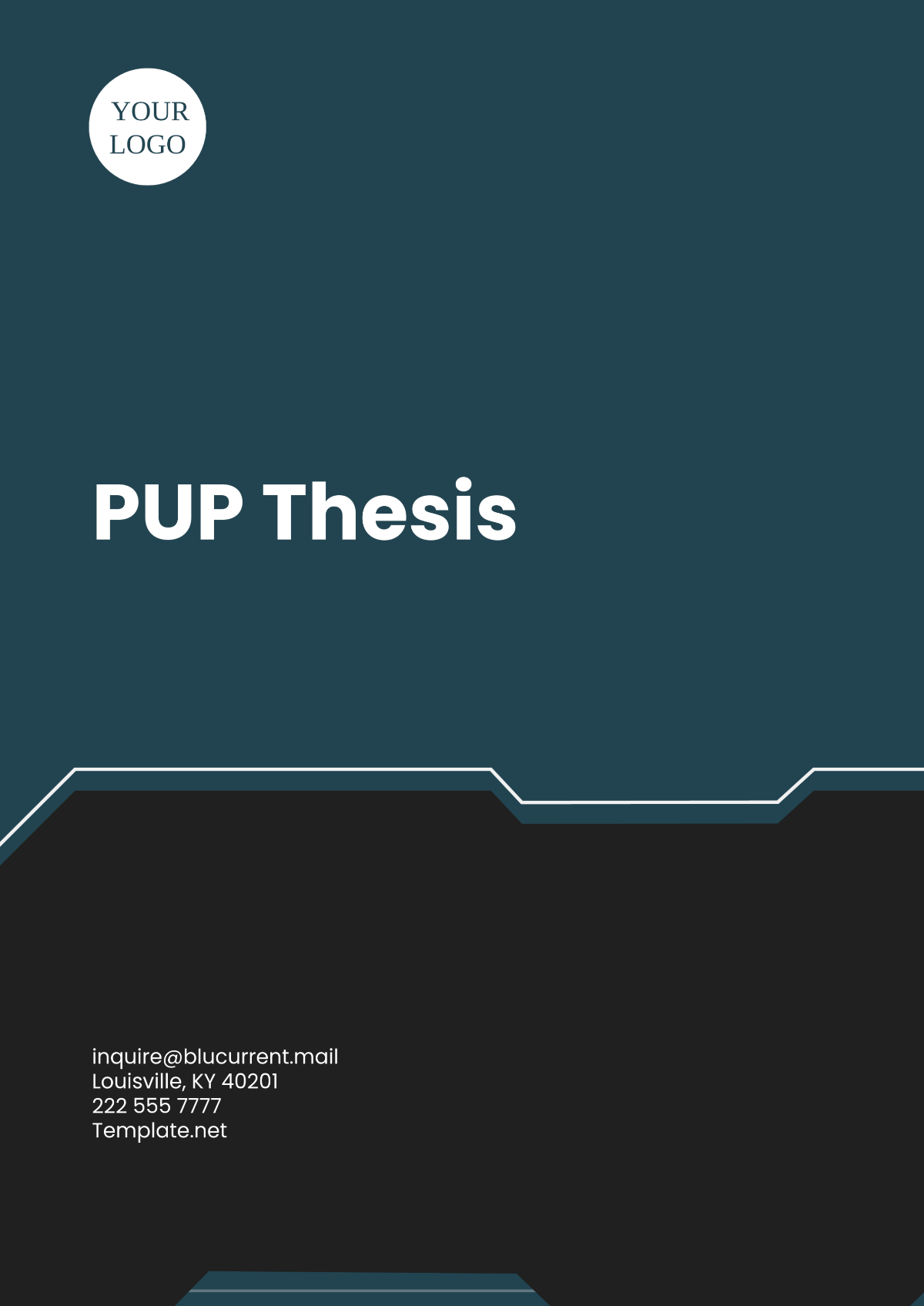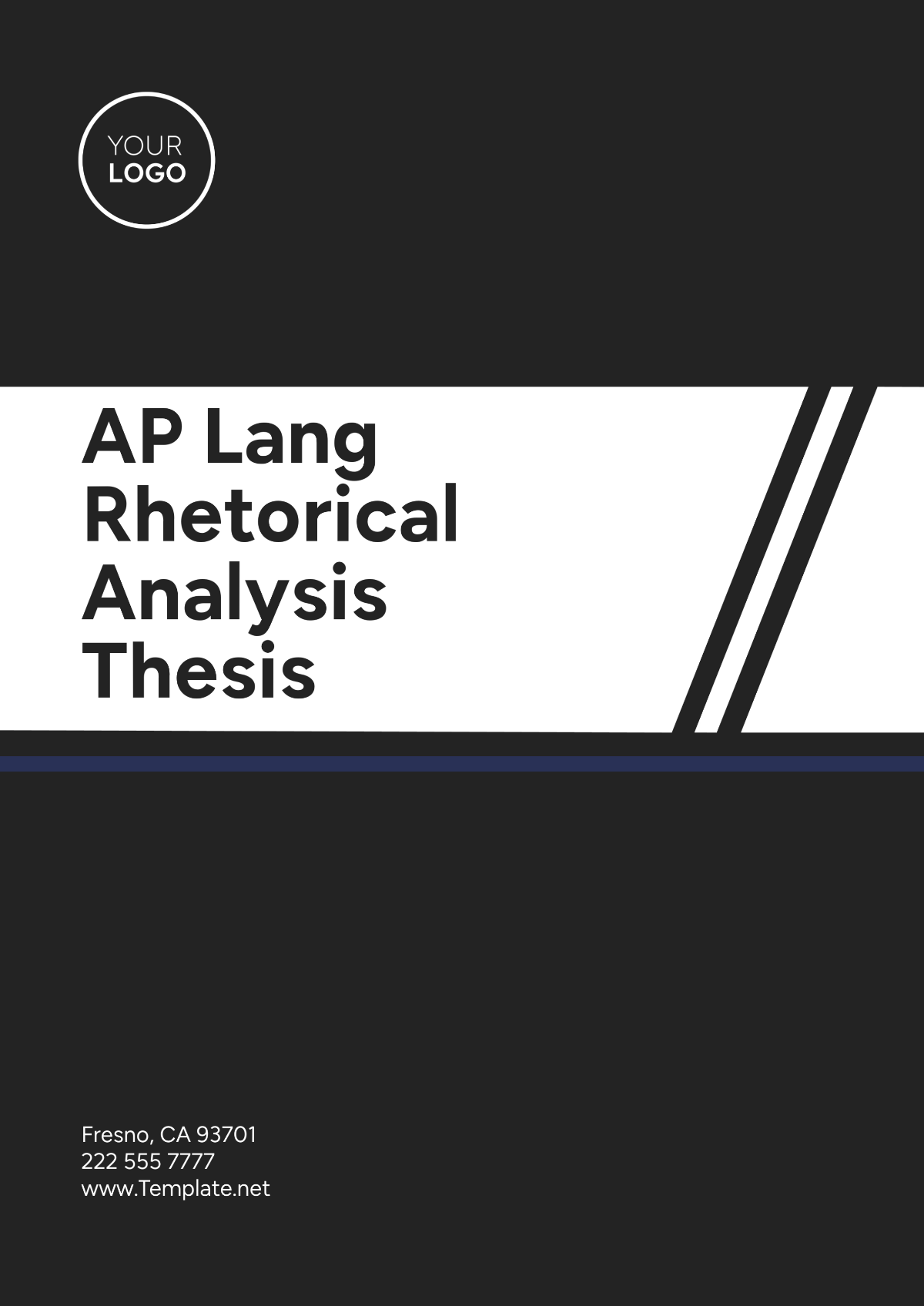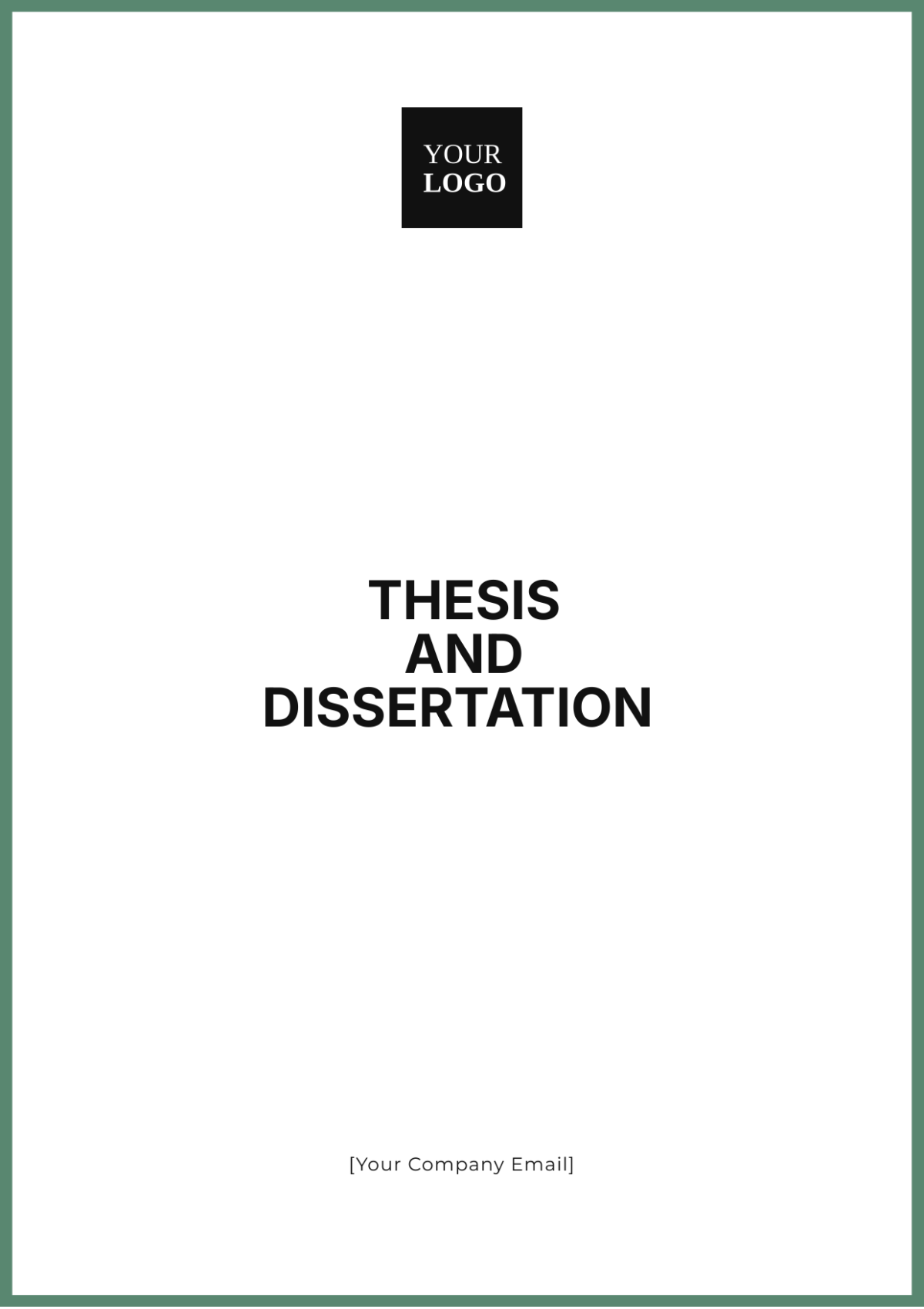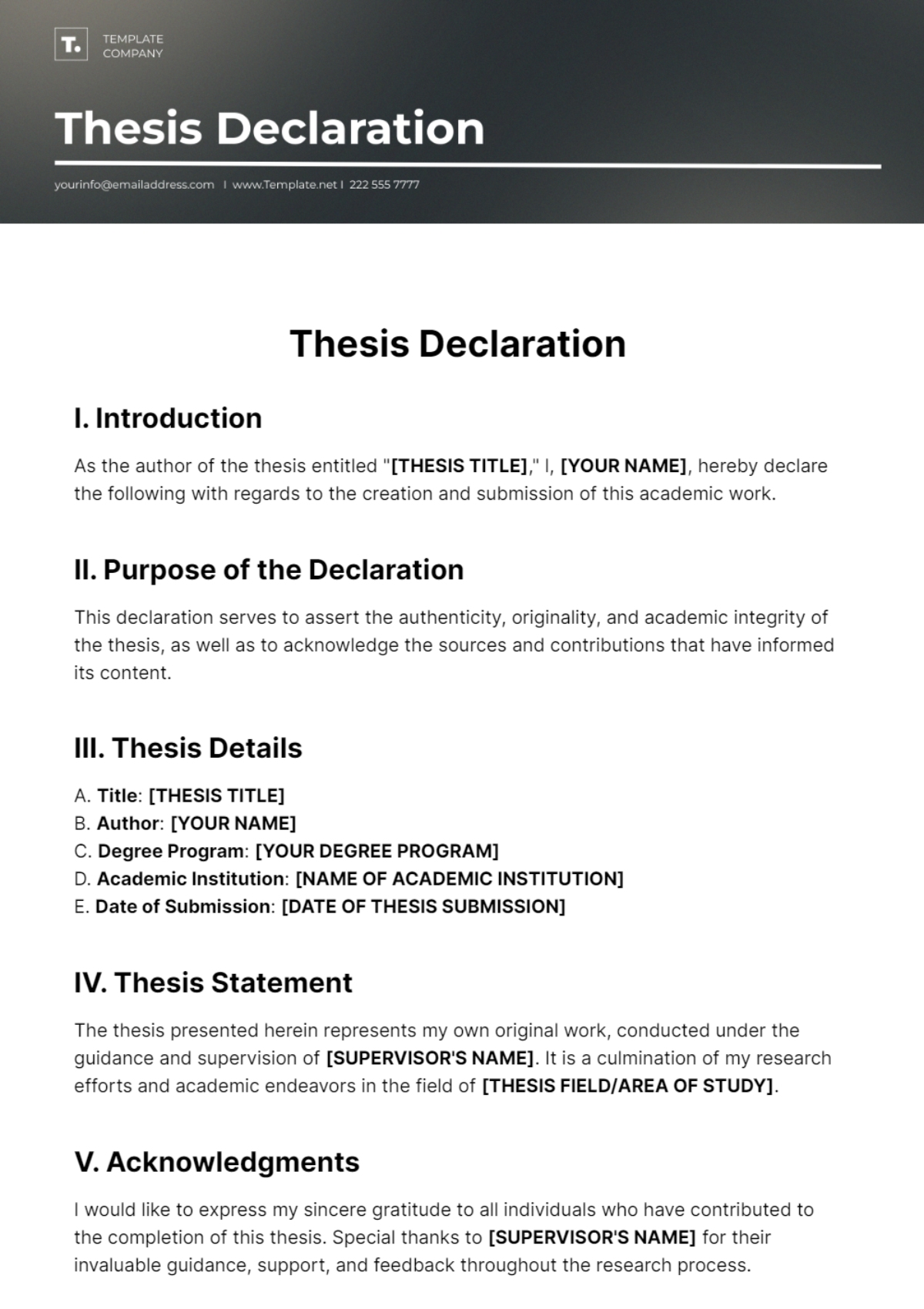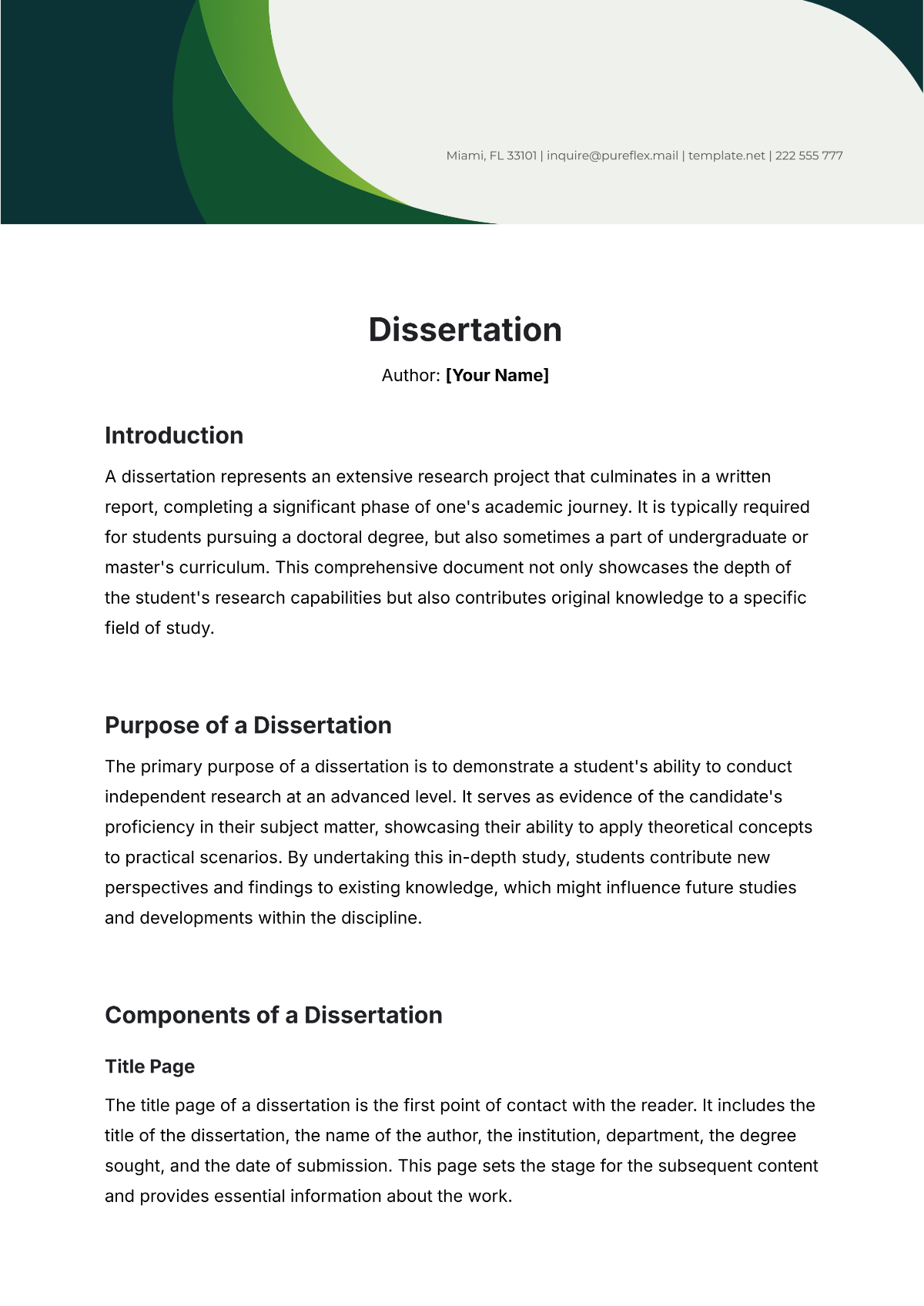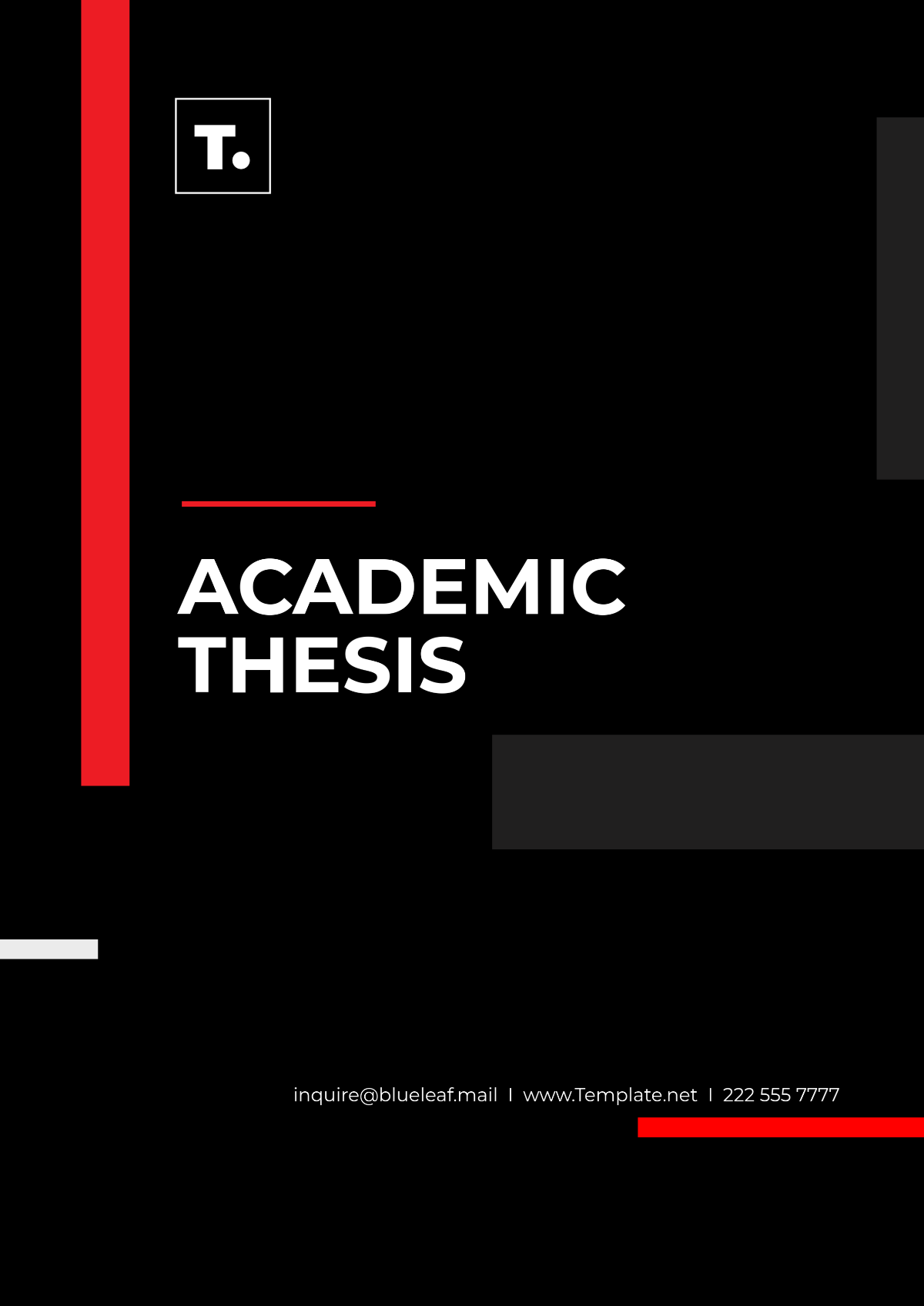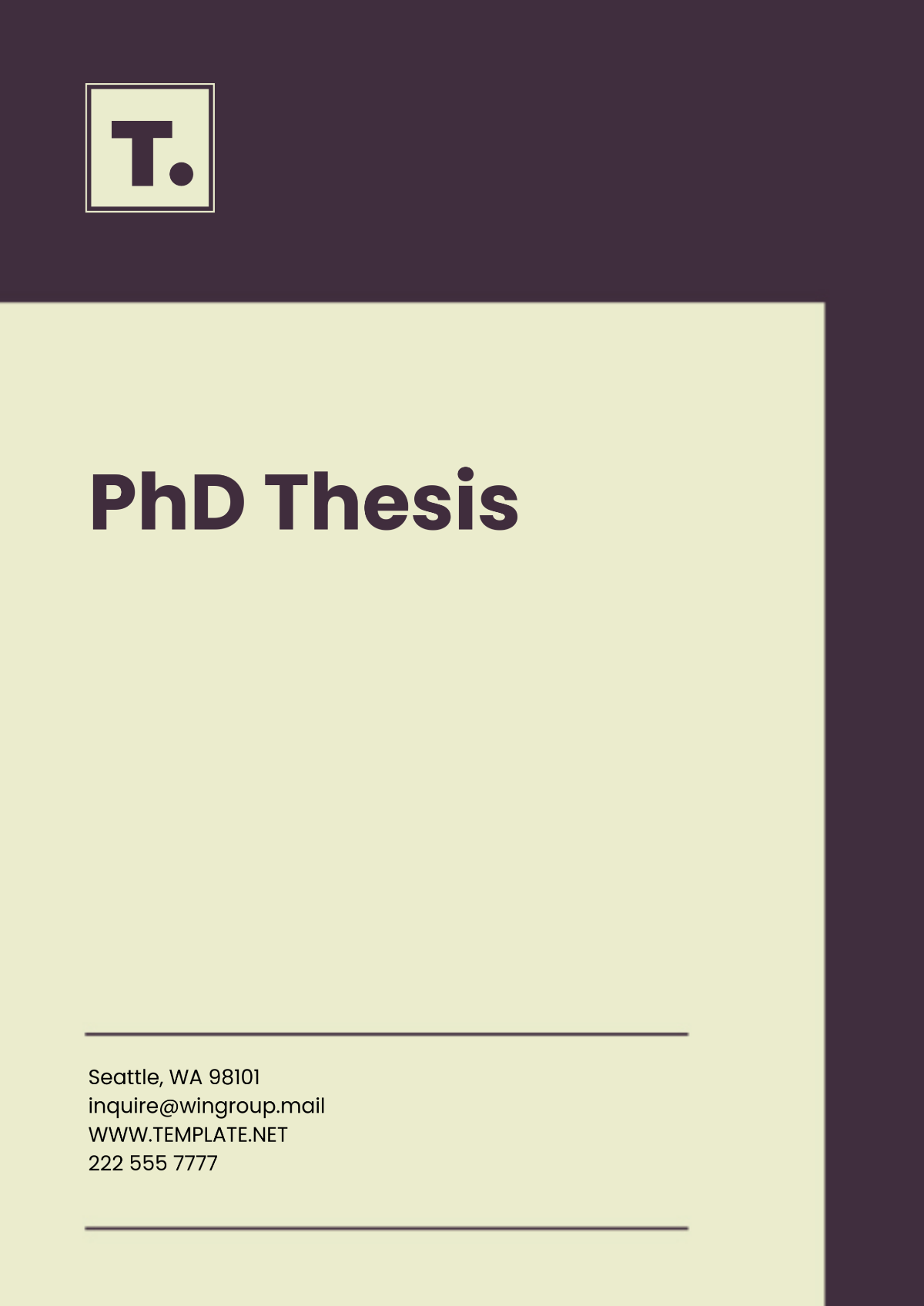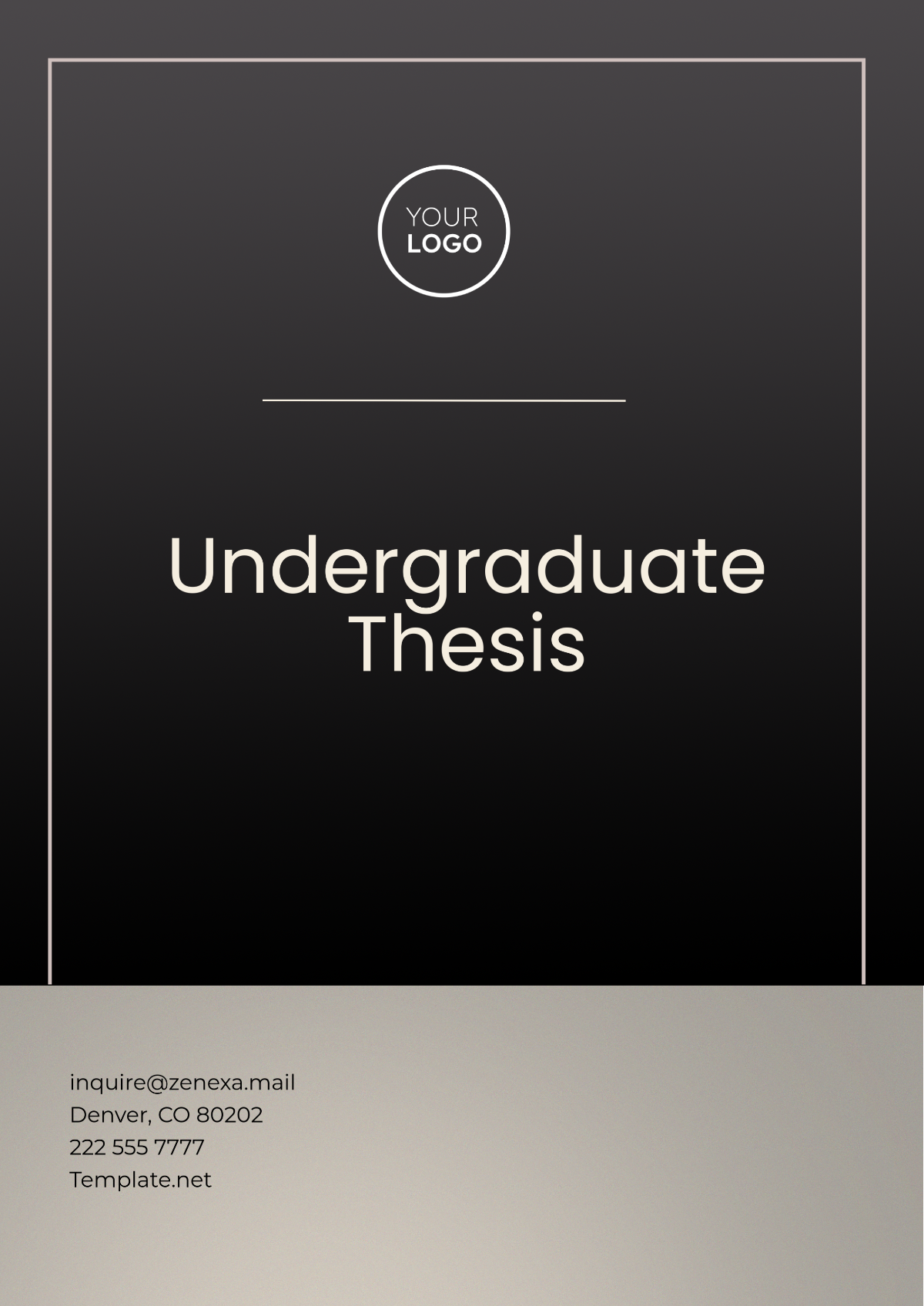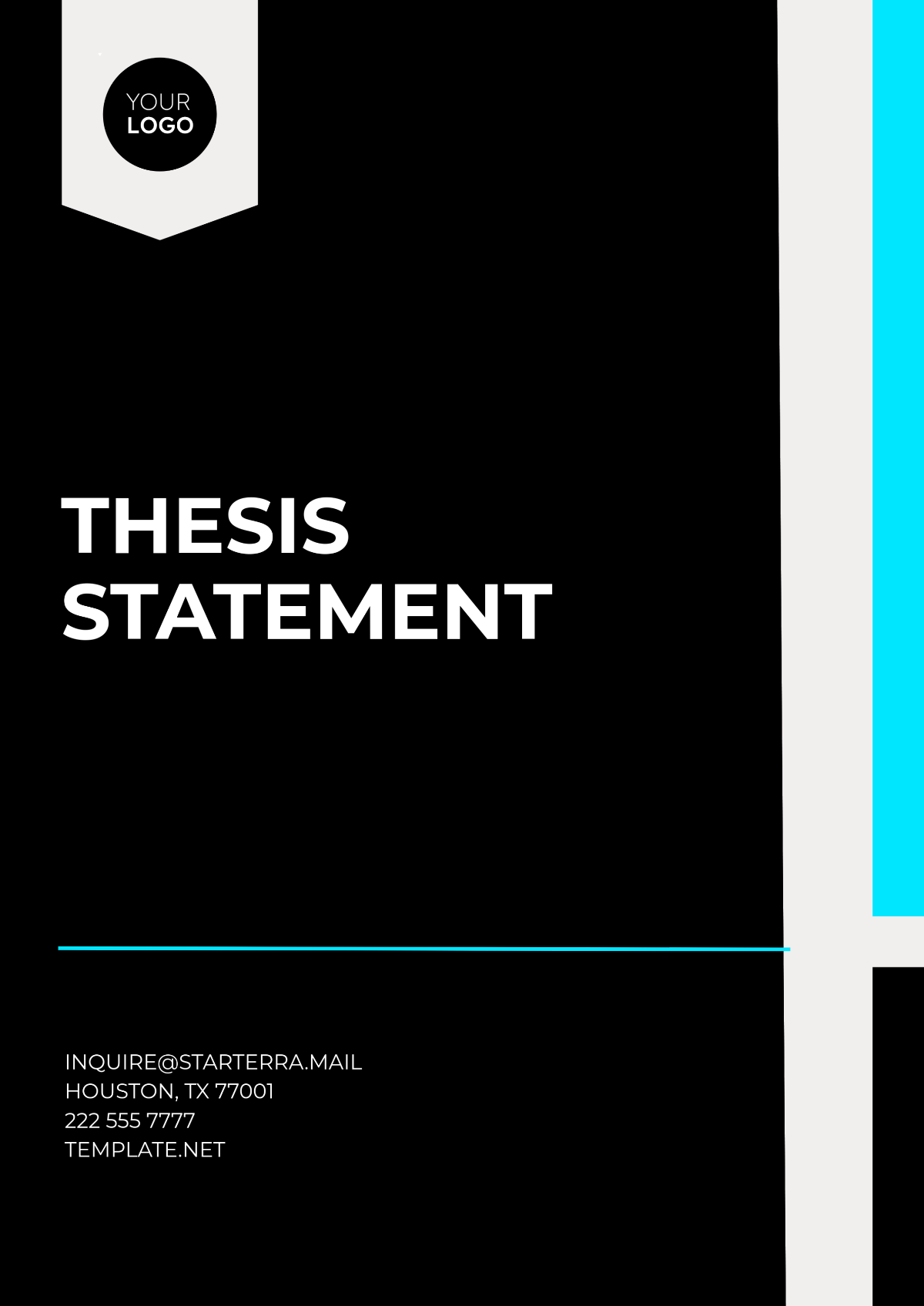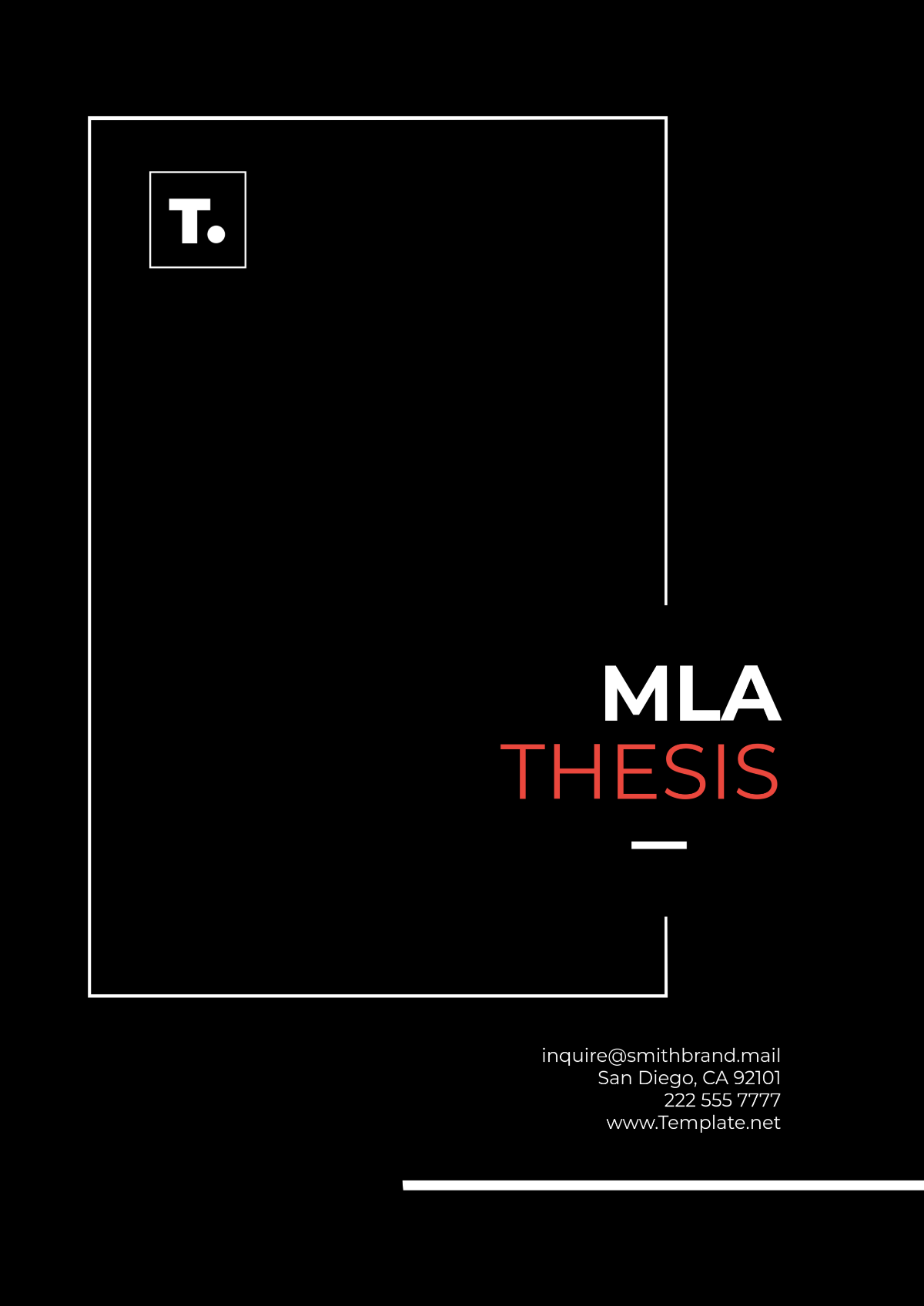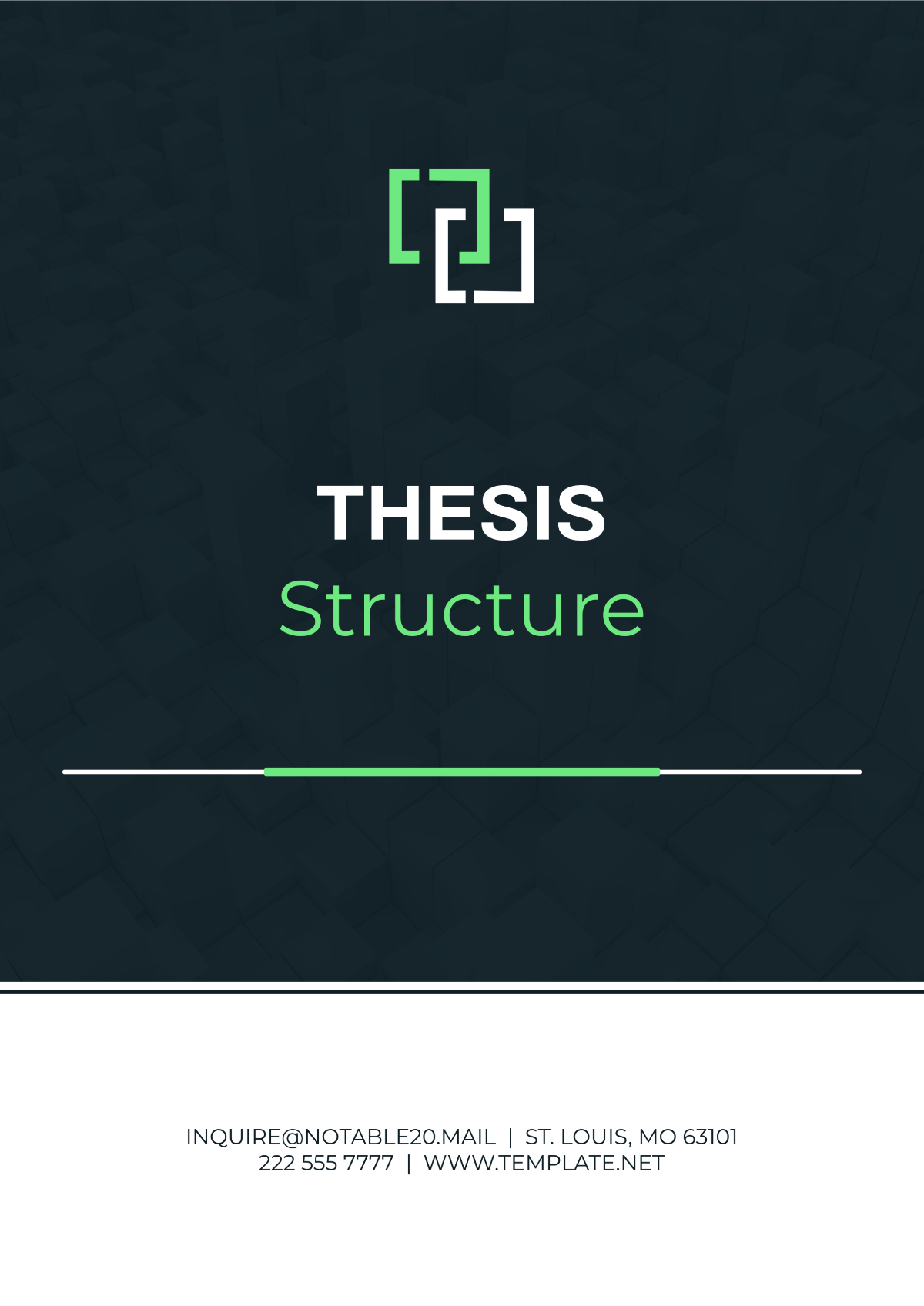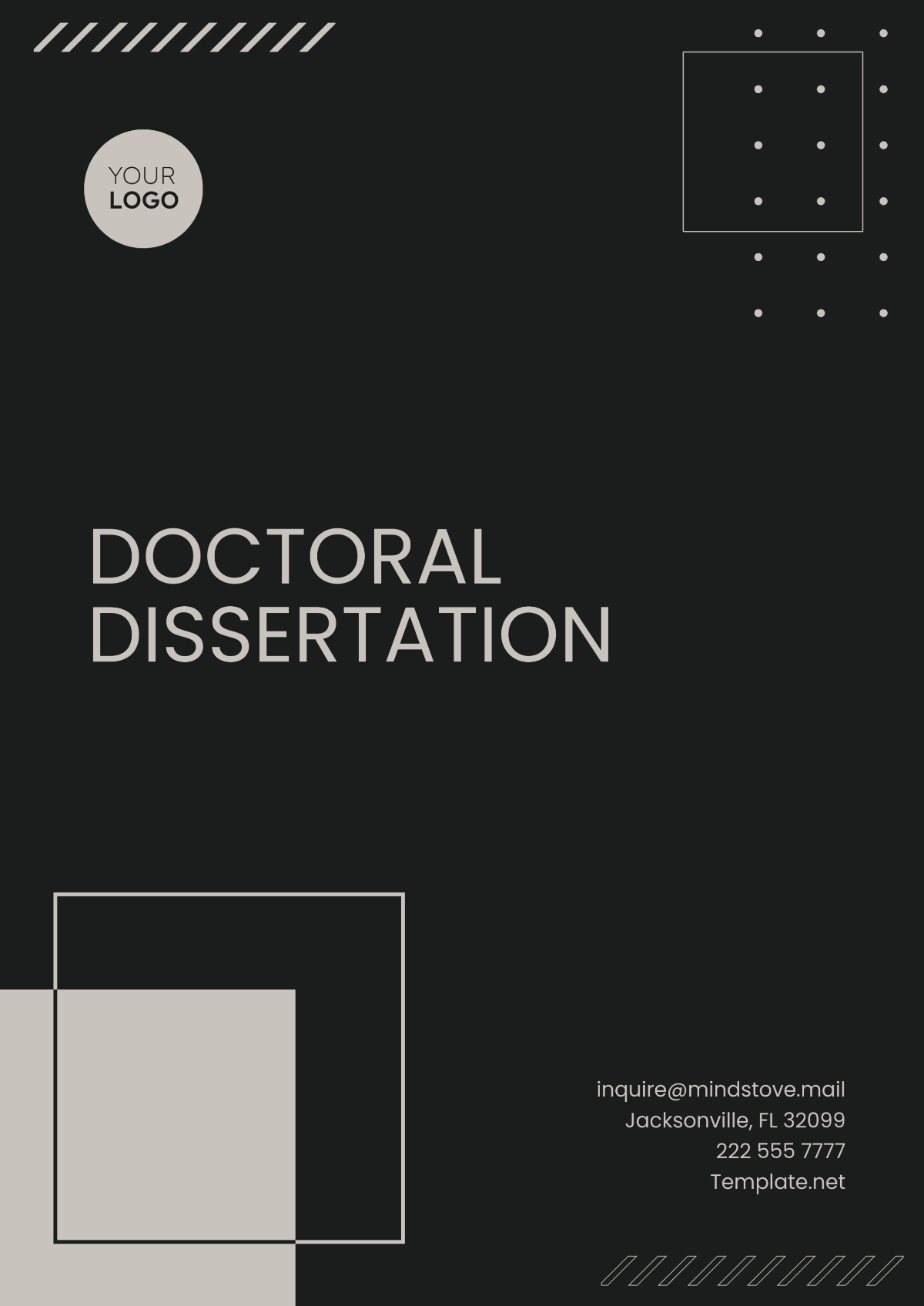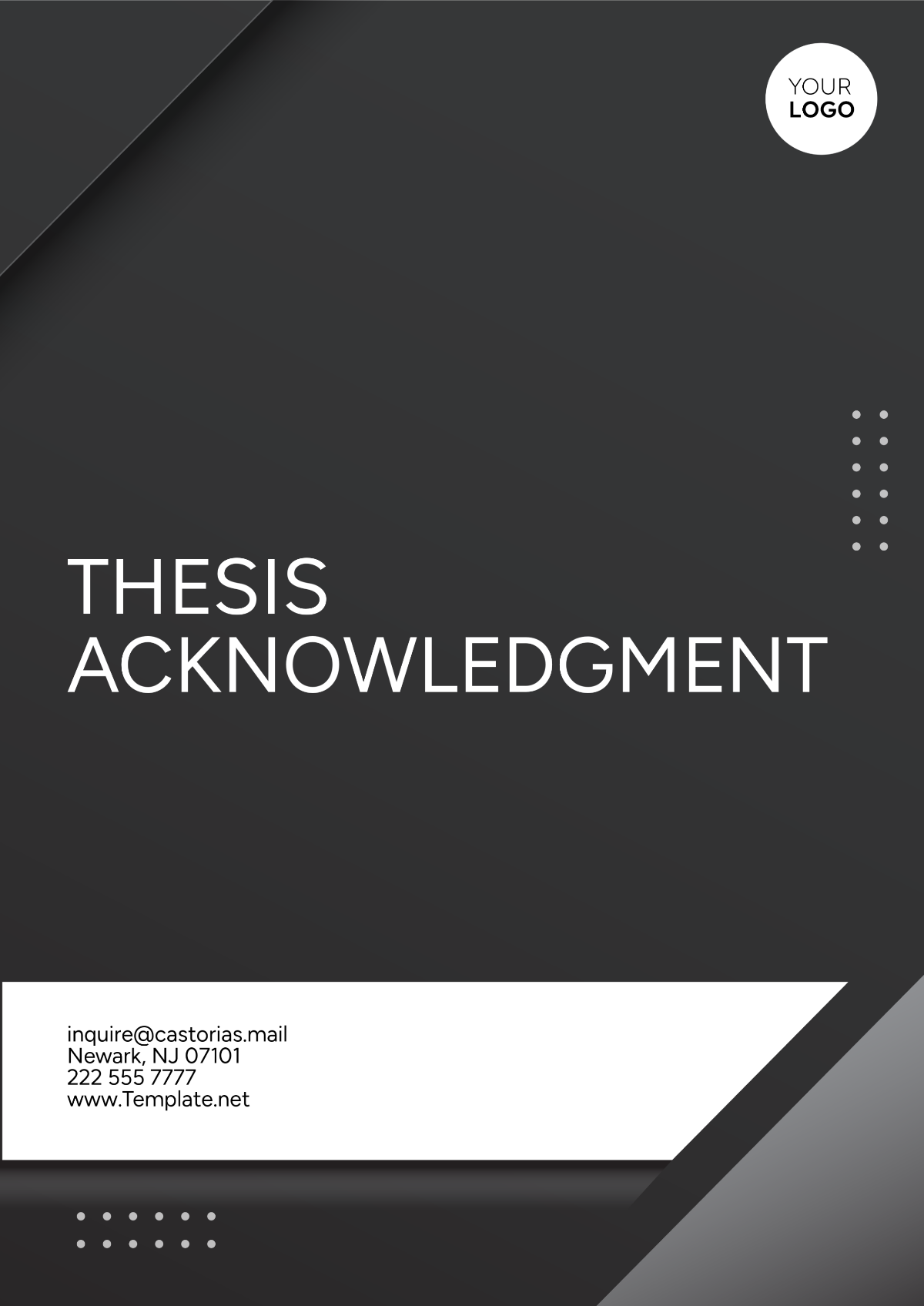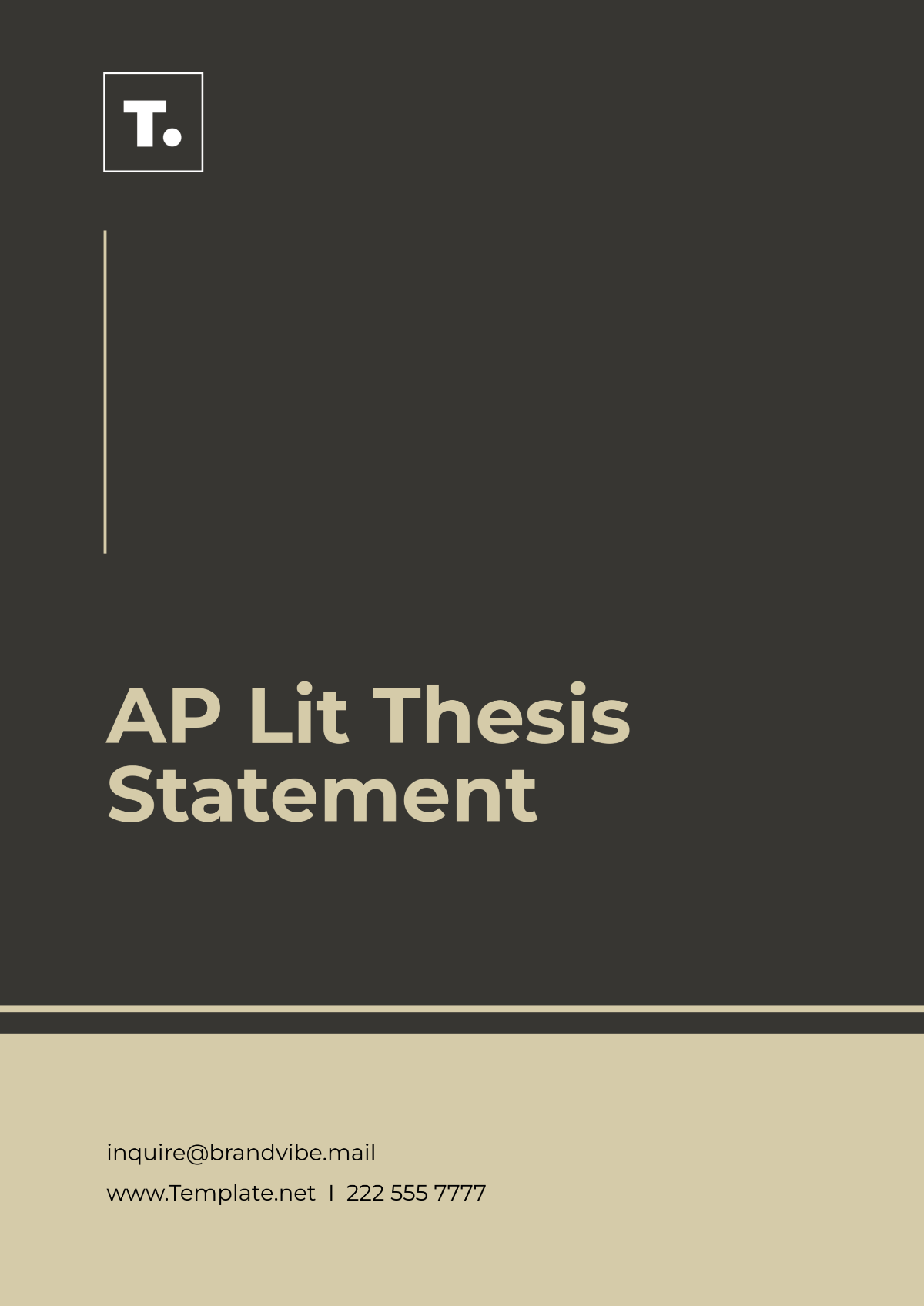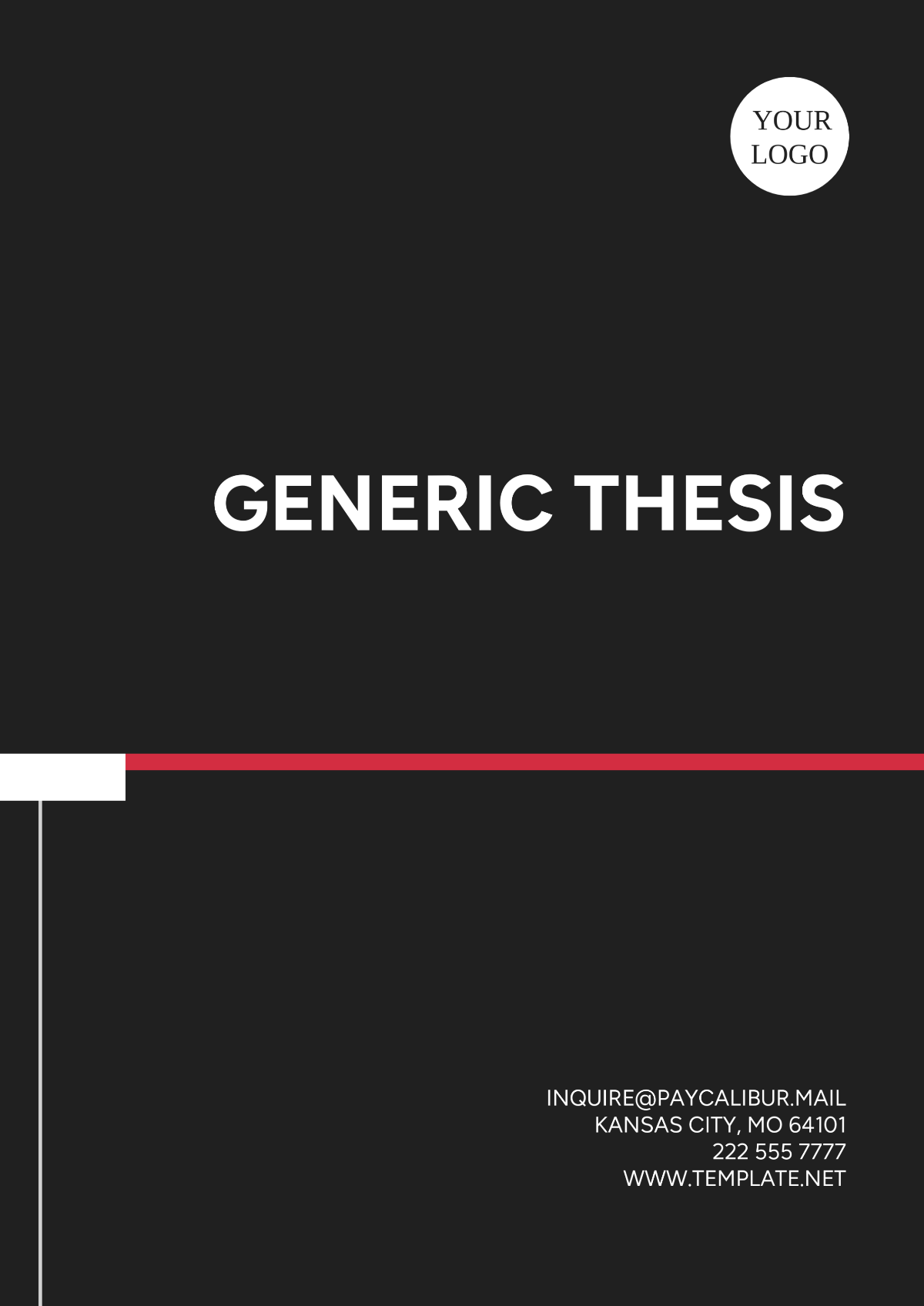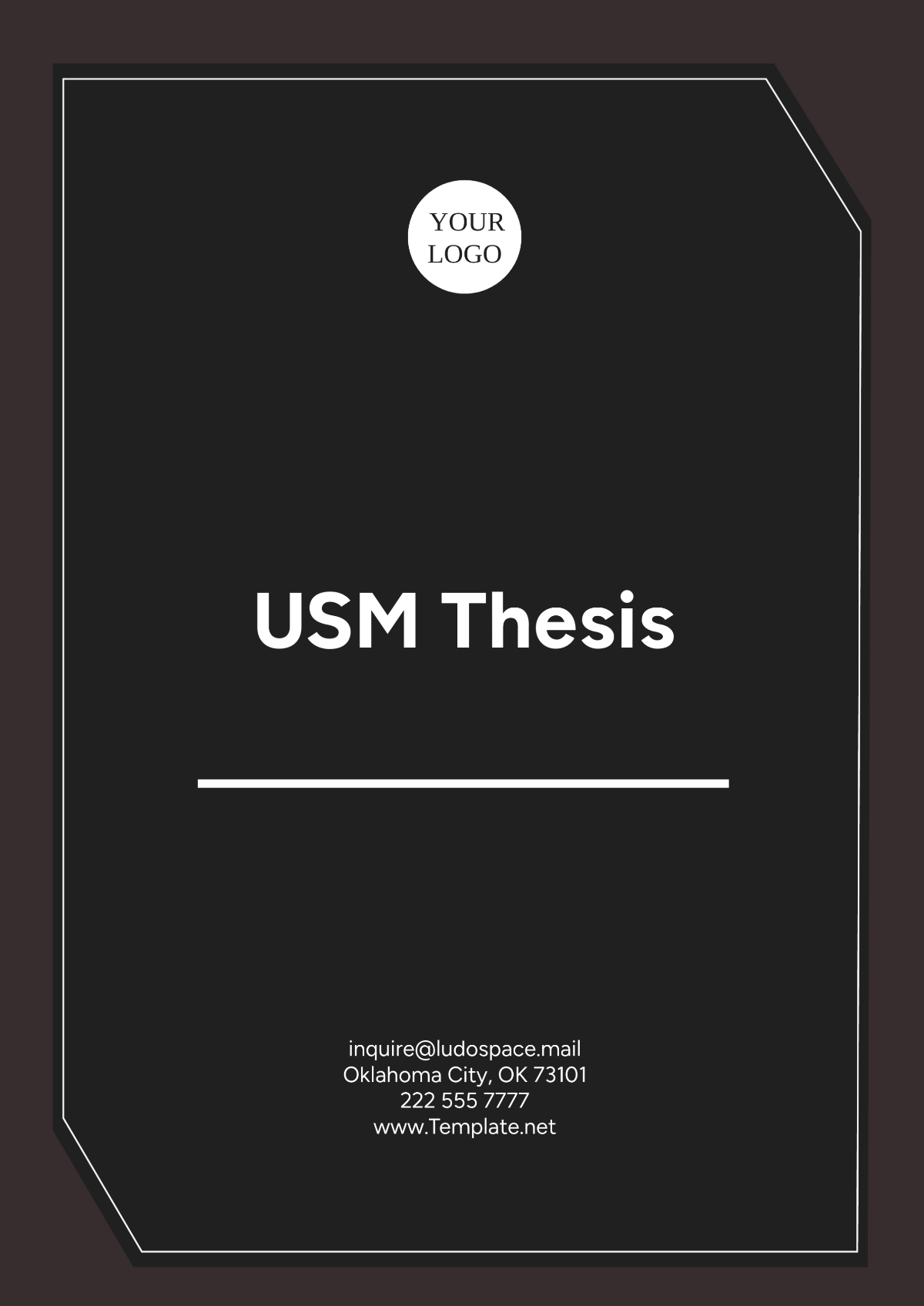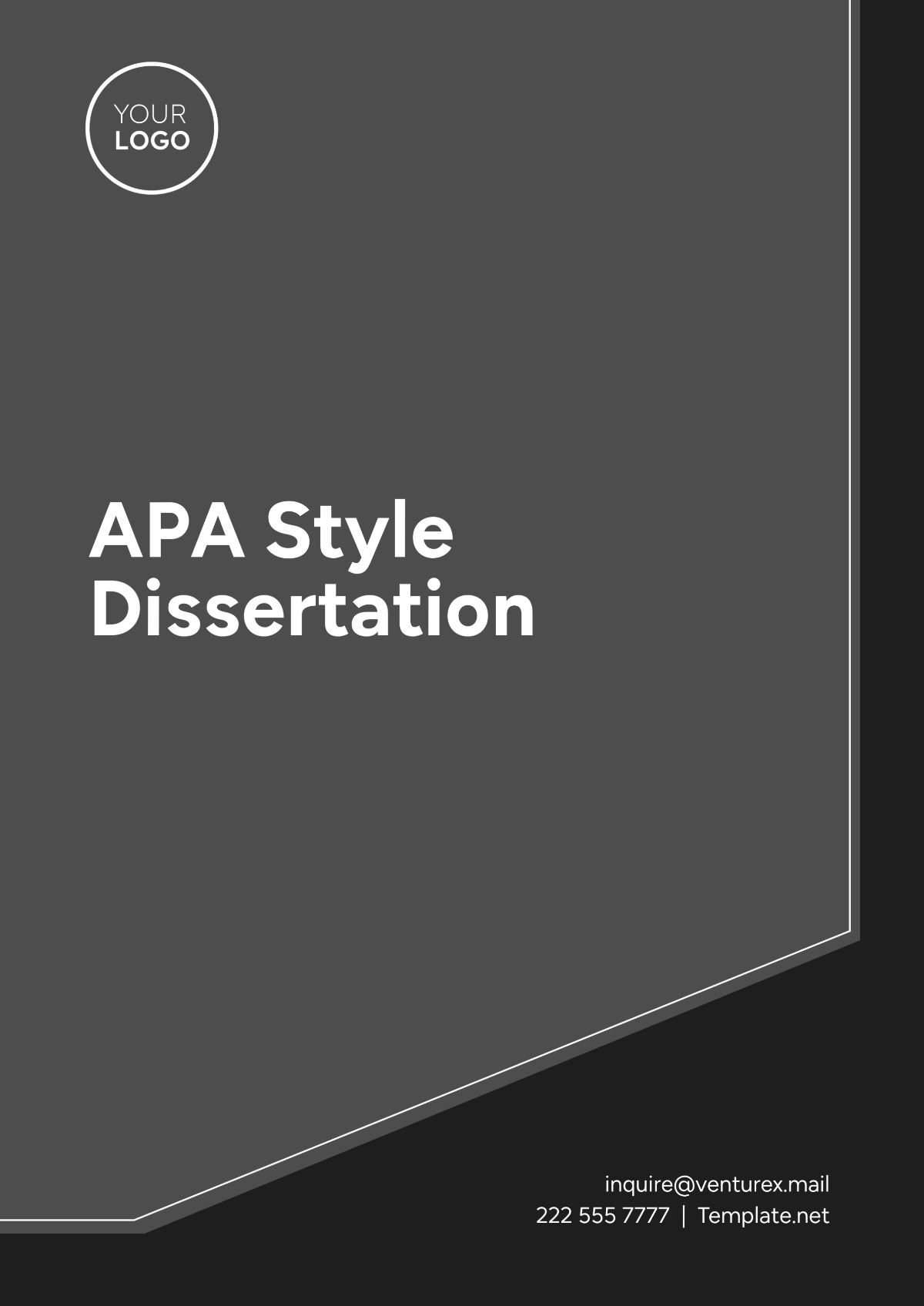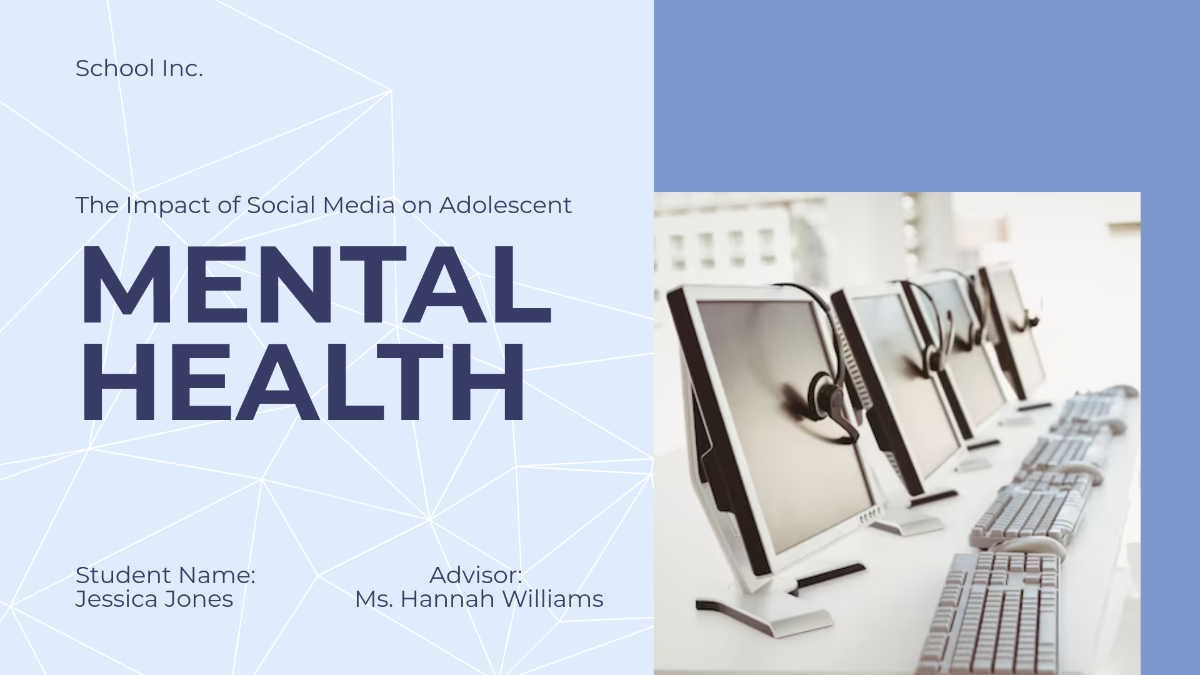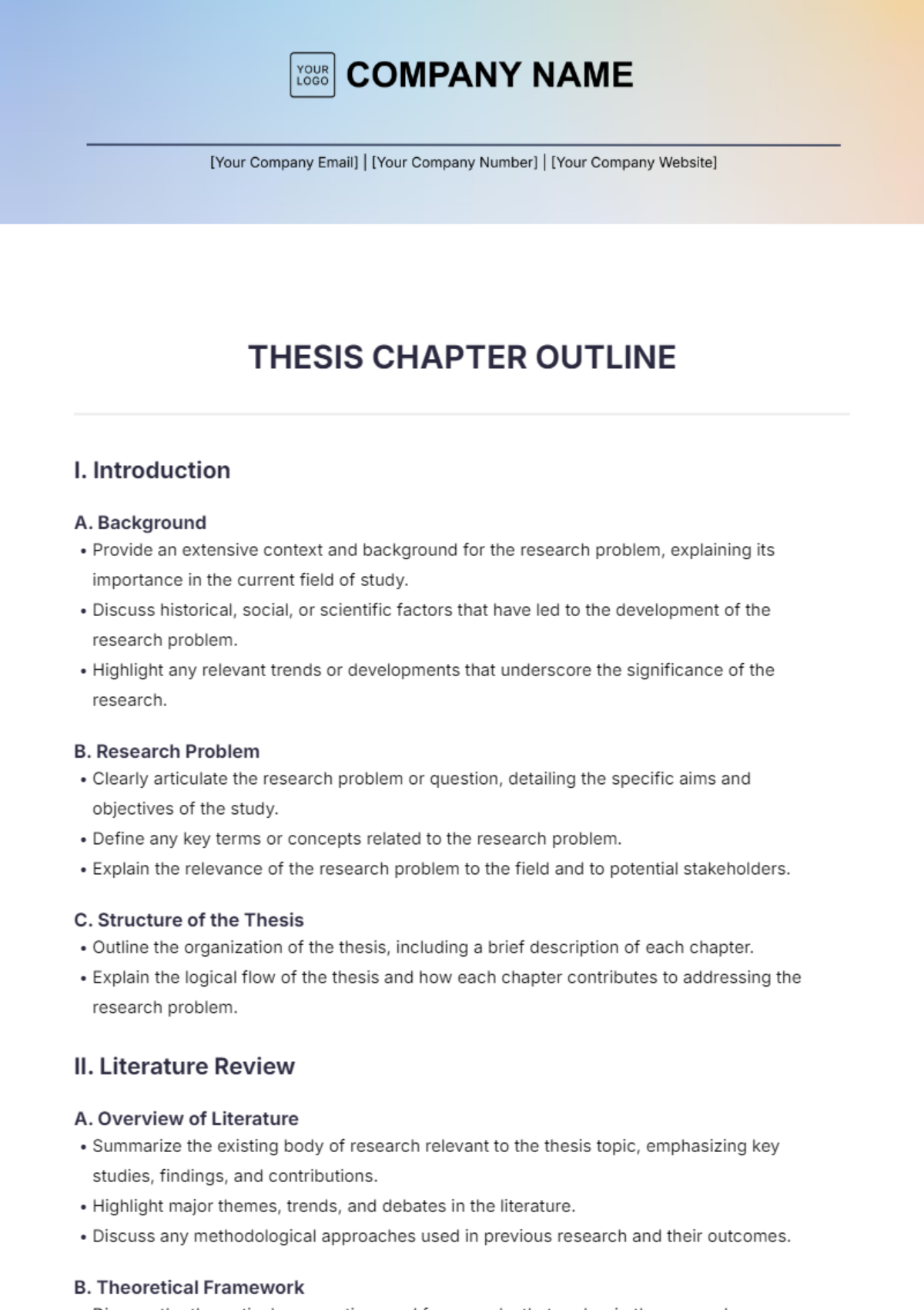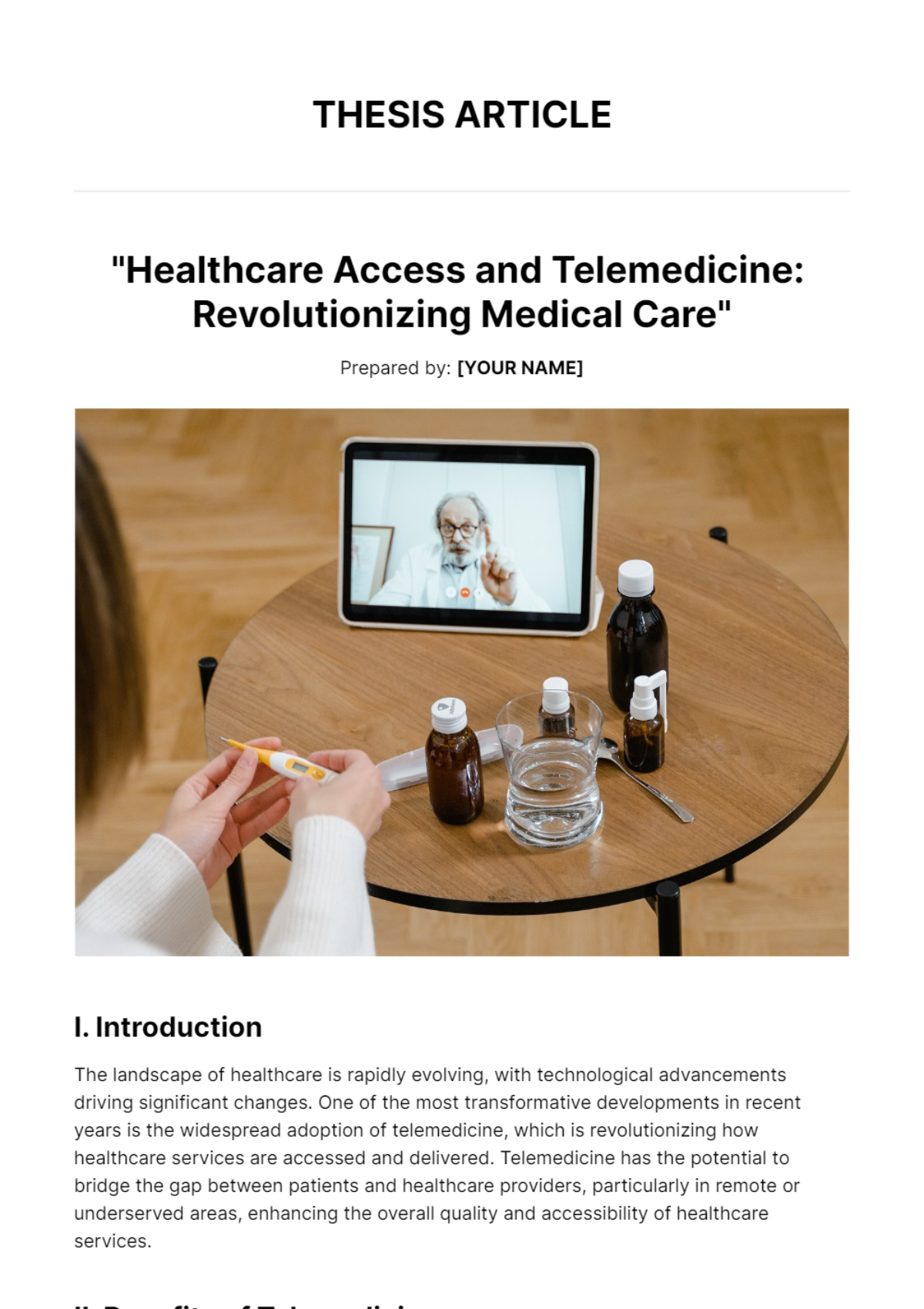Free Thesis Protocol Template
Thesis Protocol
Name: | [Your Name] |
Institution: | Academic Research Institute |
Department: | Department of Psychology |
Date: | March 27, 2050 |
_____________________________________________________________________________________
I. Introduction
Background: Social media has become an integral part of adolescents' daily lives, but its impact on mental health remains a subject of concern and debate.
Rationale: This study aims to explore the relationship between social media usage patterns and mental health outcomes among adolescents, addressing gaps in existing literature and contributing to the understanding of this complex issue.
II. Objectives
Primary Objective: To examine the correlation between the frequency and duration of social media usage and various dimensions of adolescent mental health, including depression, anxiety, and self-esteem.
Secondary Objectives:
To identify specific social media platforms most commonly used by adolescents.
To explore the influence of social media content (e.g., likes, comments, shares) on mental health outcomes.
To assess the moderating effects of factors such as gender, age, and socio-economic status on the relationship between social media usage and mental health.
III. Methodology
Study Design: A cross-sectional observational study will be conducted.
Participants: The study will target adolescents aged 13-18 years from diverse socio-economic backgrounds.
Sampling: A stratified random sampling method will be employed to ensure representation across different age groups and socio-economic strata.
Data Collection: Data will be collected through self-administered questionnaires distributed via online platforms and in-person sessions at schools.
Variables: The independent variables include frequency of social media usage, duration of usage, types of platforms used, and engagement with social media content. Dependent variables encompass measures of depression, anxiety, self-esteem, and overall mental well-being.
Ethical Considerations: Informed consent will be obtained from participants and their parents/guardians. Measures will be taken to ensure confidentiality and anonymity of responses. Ethical approval will be sought from the institutional review board.
IV. Timeline
Phase 1 (Preparation): Literature review, questionnaire development, and ethical approval - 2 months.
Phase 2 (Data Collection): Participant recruitment and data collection - 3 months.
Phase 3 (Data Analysis): Data cleaning, statistical analysis, and interpretation - 2 months.
Phase 4 (Reporting): Thesis writing, presentation of findings, and submission - 3 months.
V. Expected Outcomes
Identification of associations between social media usage patterns and mental health outcomes among adolescents.
Insights into the role of specific social media platforms and content types in influencing mental well-being.
Recommendations for parents, educators, and policymakers regarding responsible social media use among adolescents.
VI. Conclusion
This Thesis Protocol outlines a comprehensive plan for investigating the impact of social media usage on adolescent mental health. By adhering to ethical guidelines and employing rigorous methodology, this study aims to contribute valuable insights to the field of adolescent psychology and inform interventions aimed at promoting positive mental health outcomes in this population.
_____________________________________________________________________________________
